Do you have a fascination with ancient history and art? These are the top ancient art museums in Spain:
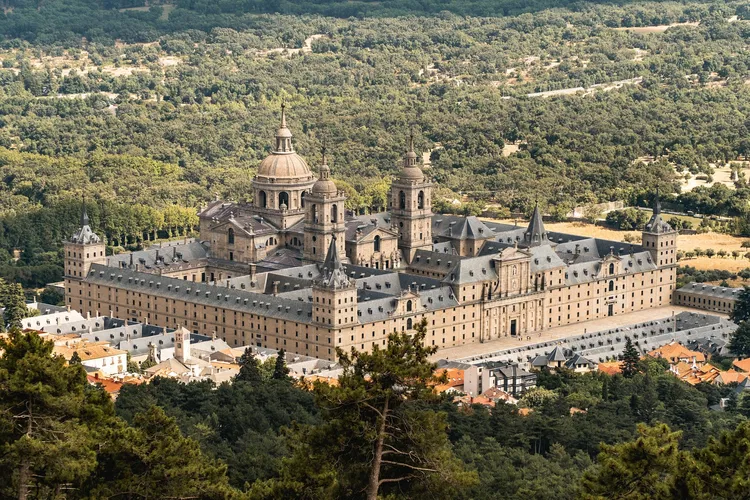
Royal Site of San Lorenzo de El Escorial
MadridEl Escorial, located in the Madrid Autonomous Region at the foot of the Sierra de Guadarrama mountain, is a significant religious and cultural structure. It comprises a monastery, palace, library, and other sections. This complex was used as a residence by King Philip II of Spain, adding to its historical significance.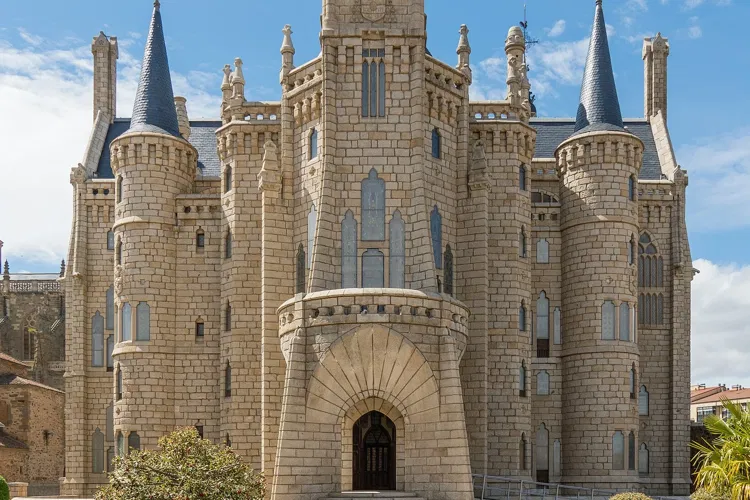
Palace of Gaudí
AstorgaThe Episcopal Palace of Astorga, a masterpiece by the renowned Catalan architect Antoni Gaudí, stands as a testament to the Catalan Modernisme style. Constructed between 1889 and 1913, this architectural marvel is one of only three buildings by Gaudí outside Catalonia. Its unique design and historical significance make it a fascinating destination for those interested in architecture and history.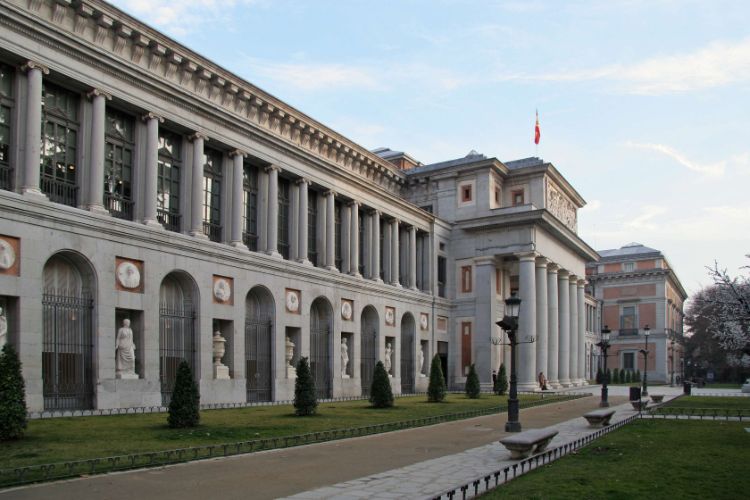
Prado National Museum
MadridThe Prado National Museum holds and exhibits one of the largest collections of European art in the world. It contains more than 7,600 paintings, some of them on the display here and some on loan in other museums. Being one of the most visited art museums in the world, the Prado National Museum is ho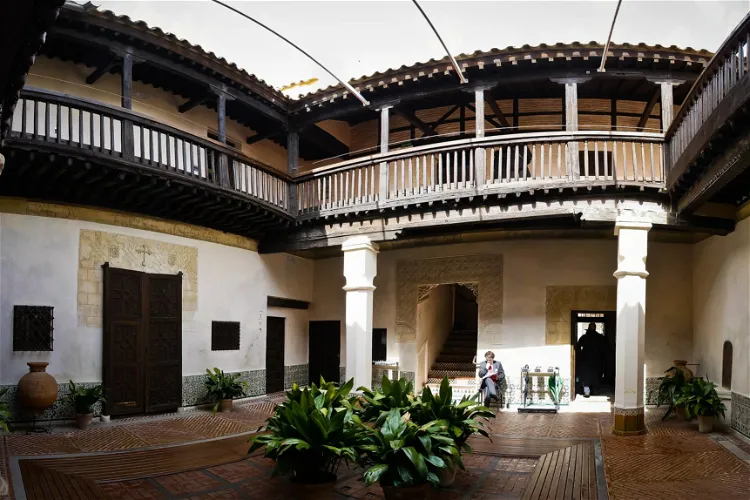
El Greco Museum
ToledoThe El Greco Museum, situated in the city of Toledo, Spain, is a tribute to the life and work of the renowned painter El Greco. Born in Crete, El Greco spent a significant part of his life in Toledo, where he created most of his masterpieces. The museum offers a unique opportunity to delve into the artist's life and explore his prolific work.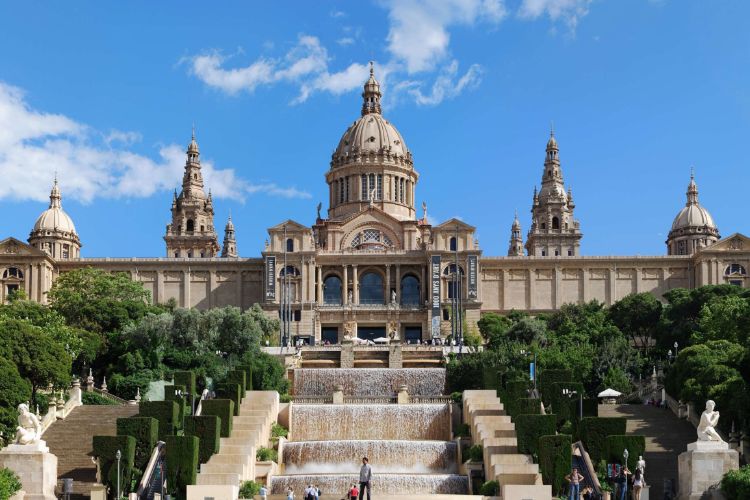
MNAC - Museu Nacional d'Art de Catalunya
BarcelonaMuseu Nacional d'Art de Catalunya displays original Catalan art but it is also known for its extensive collection of Romanesque paintings. It's set in the Palau Nacional of Montjuïc, a Spanish Renaissance building designed for the 1929 International Exhibition. On the ground floor, the collections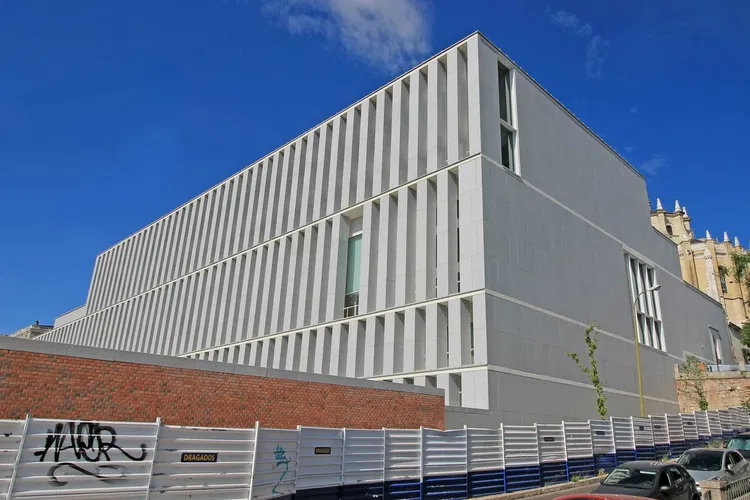
Royal Collections Gallery Madrid
MadridThe Royal Collections Gallery, which was originally known as the Royal Collections Museum, is an art museum situated in Madrid. It is managed by the Spanish state agency Patrimonio Nacional and is located in a new building above the gardens of the Campo del Moro park, adjacent to the Almudena Cathedral and the Royal Palace.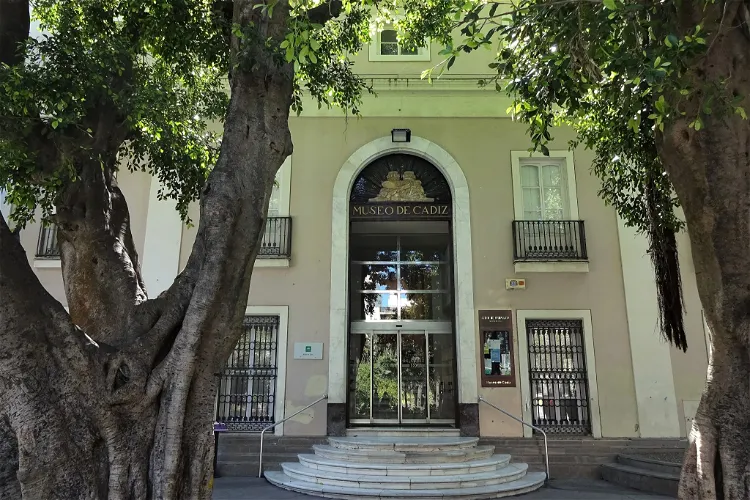
Cadiz Museum
CádizThe Cadiz Museum is situated in the heart of the old town of the Andalusian city of Cadiz, specifically at Plaza de Mina. This location is steeped in history and offers a unique cultural experience for visitors. The museum building itself was restructured by architect Juan Daura based on his 1838 design, transforming part of the secularized Franciscan convent.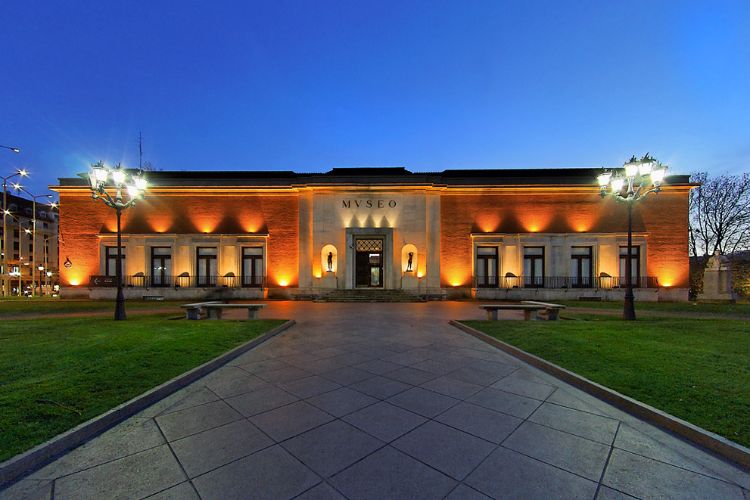
Bilbao Fine Arts Museum
BilbaoThe Bilbao Fine Arts Museum is an art museum in Bilbao, located inside the Doña Casilda Iturrizar park. It is one of the richest Spanish museums outside Madrid, with its extensive collection of Basque, Spanish and European art from the Middle Ages to contemporary. The Bilbao Fine Arts Museum holds w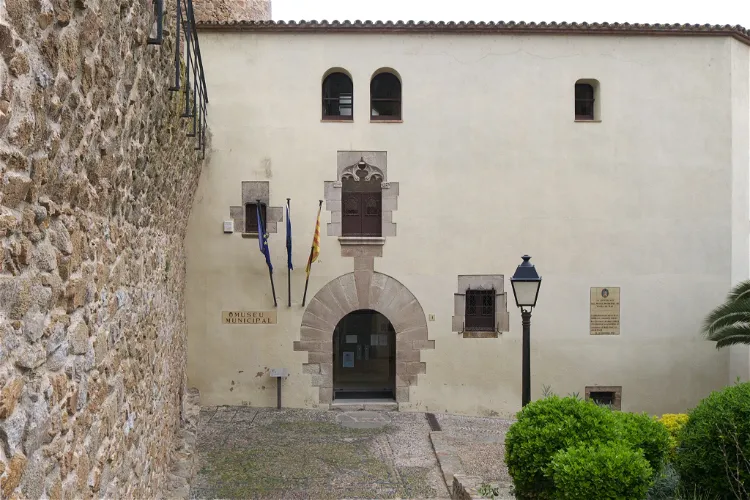
Municipal Museum of Tossa de Mar
Tossa de MarThe Municipal Museum of Tossa de Mar is a significant cultural asset of national interest located in the town of Tossa de Mar in Catalonia. The museum's primary purpose is to display the works of artists who have stayed in Tossa de Mar, making it a rich repository of artistic heritage.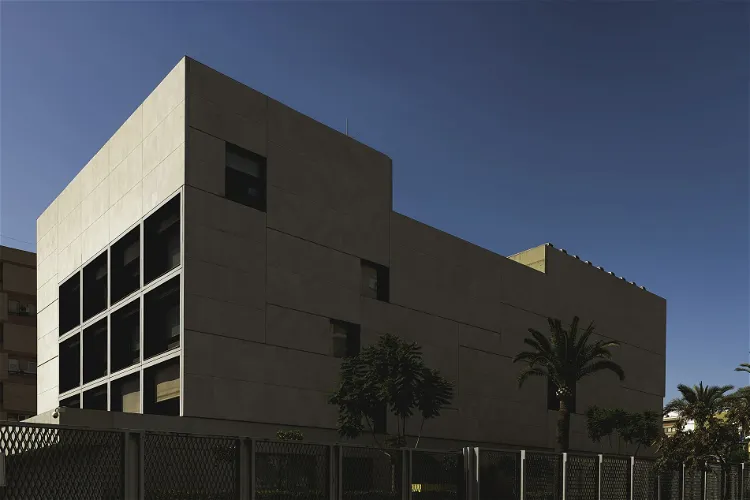
Museum of Almería
AlmeriaThe Museum of Almería, located in the Province of Almería, is an archaeological institution that has been serving the public since 1934. In 2006, the museum relocated to a new building, providing a modern and spacious environment for its exhibits.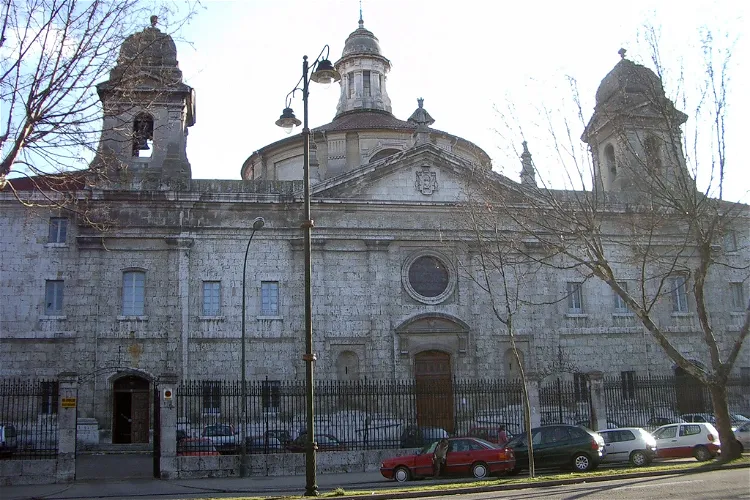
Oriental Museum
ValladolidThe Oriental Museum of Valladolid, situated within the convent of the Augustinians Filipinos in Valladolid, Spain, is recognized by some as the premier museum of its kind in the country. This museum offers a unique opportunity to explore a rich collection of Oriental art and artifacts, providing a deep insight into the cultures of the East.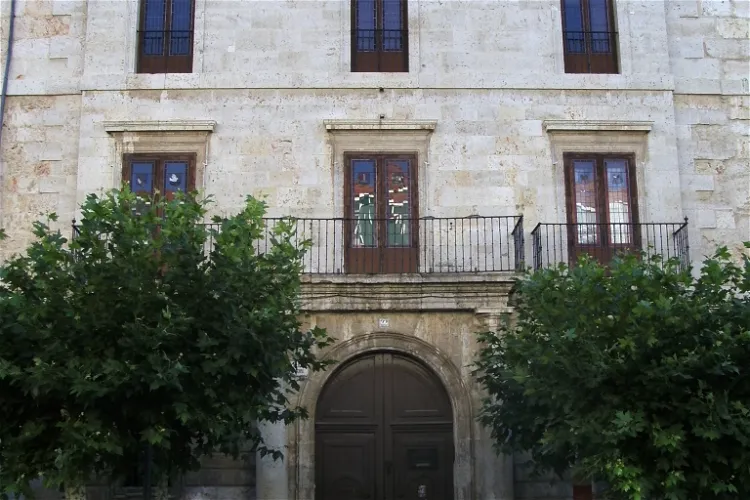
Diocesan Museum
PalenciaThe Diocesan Museum of Palencia, inaugurated in 1973, is a museum dedicated to the custody and study of the sacred art of the diocese. It is located in the Episcopal Palace of the capital of Palencia, a significant historical site in itself.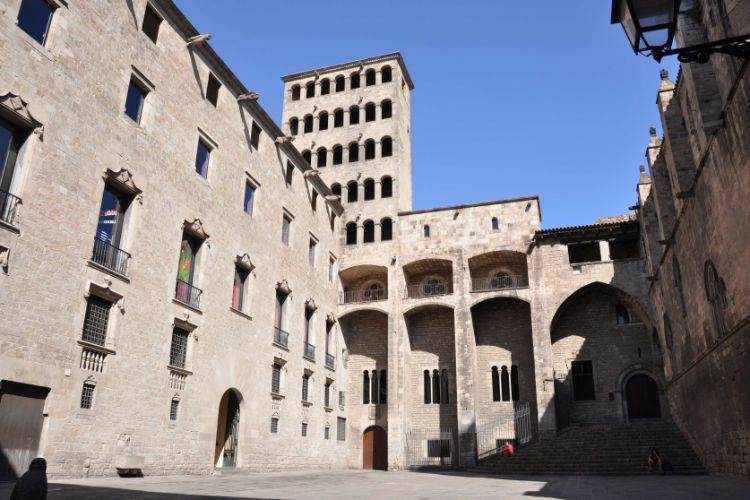
MUHBA Plaça del Rei
BarcelonaThe headquarters of the Barcelona City History Museum is situated in the three-story building. The museum lets you explore the remains of the ancient Roman city of Barcino. The museum consists of the archaeological underground and Palau Reial. The underground is all about the daily life in Roman ti
Cerralbo Museum
MadridThe Cerralbo Museum is a museum in Madrid that is housed in a historical mansion where it exhibits an extensive collection of artwork (over 50.000 objects). The museum is named after the marquis of Cerralbo, who used to own it. What was once considered the greatest private art collection in Spain, c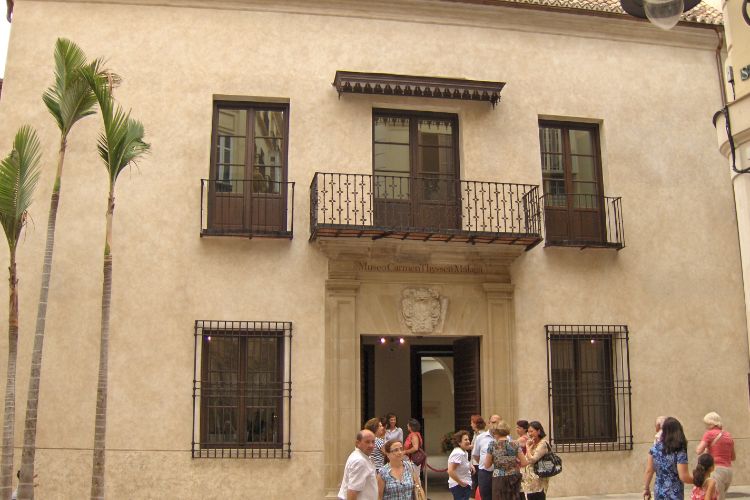
Museo Carmen Thyssen Málaga
MálagaThe Carmen Thyssen Museum (Museo Carmen Thyssen Málaga) is an art museum in Málaga that mainly focuses on 19th-century Spanish painting, predominantly Andalusian. The main part of the collection of the museum is based on the collection of Carmen Cervera, the third wife of Baron Hans Heinrich Thyssen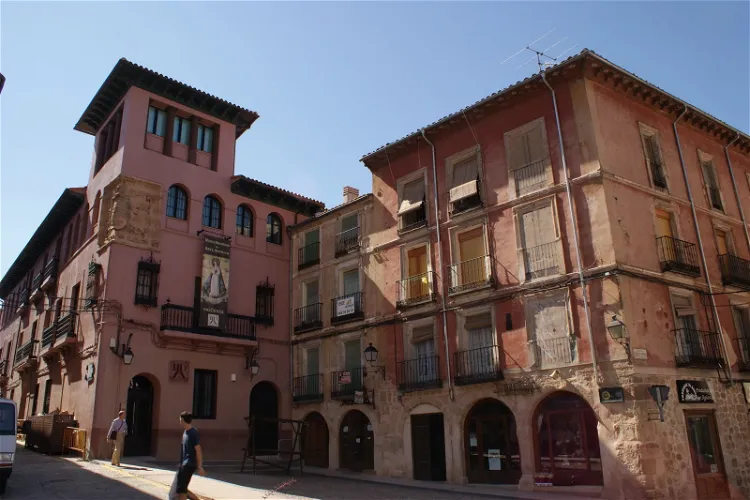
Diocesan Museum
SigüenzaThe Diocesan Museum of Ancient Art in Sigüenza is housed in a 16th-century neoclassical mansion known as the 'Antigua Casa de los Barrena'. This historic building is conveniently located in the heart of the city of Sigüenza, directly opposite the cathedral. This central location makes it easily accessible for tourists visiting the city.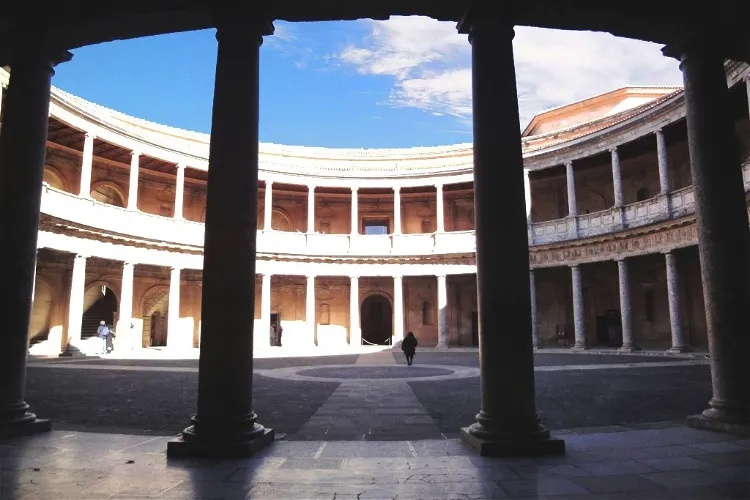
Museum of Fine Arts of Granada
GranadaThe Museum of Fine Arts of Granada is home to the largest collection of ancient art in Andalusian Granada. The majority of the works on display have a connection to the city, providing visitors with a unique insight into the region's rich artistic history.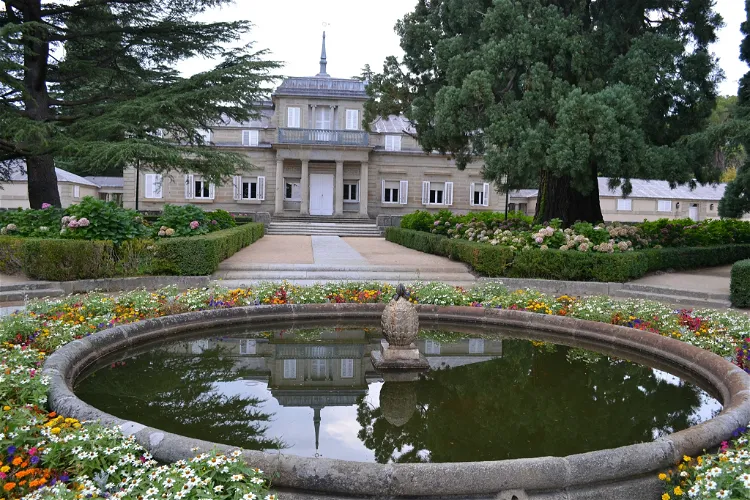
Casita del Príncipe
El EscorialLa Casita del Príncipe, also known as Casita de Abajo, is a royal residence from the 18th century. It is located in the municipality of El Escorial, in the Community of Madrid, Spain. The building was designed by Juan de Villanueva, one of the most important architects of Spanish neoclassicism, and was built between 1771 and 1775. It was declared a Cultural Interest Property in 1931.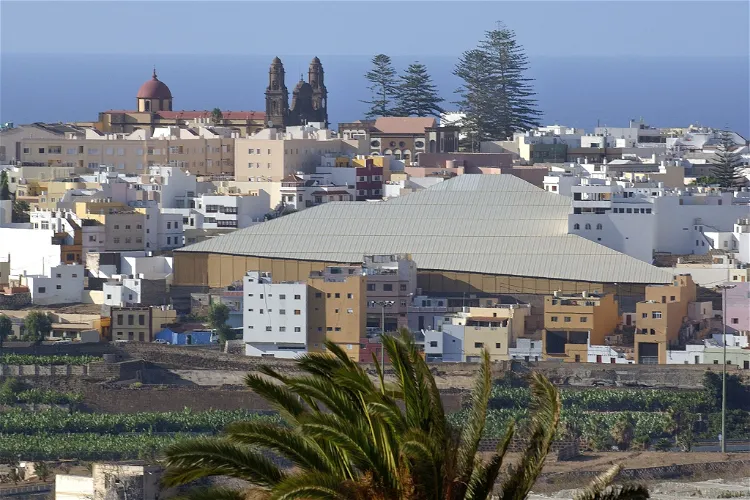
Cueva Pintada Museum and Archaeological Park
GáldarThe Cueva Pintada Museum and Archaeological Park is situated in the city of Gáldar, which is in the northwest of the island of Gran Canaria, Canary Islands, Spain. This location is a significant part of the Culture, Historical Heritage and Museums Council of the Cabildo de Gran Canaria.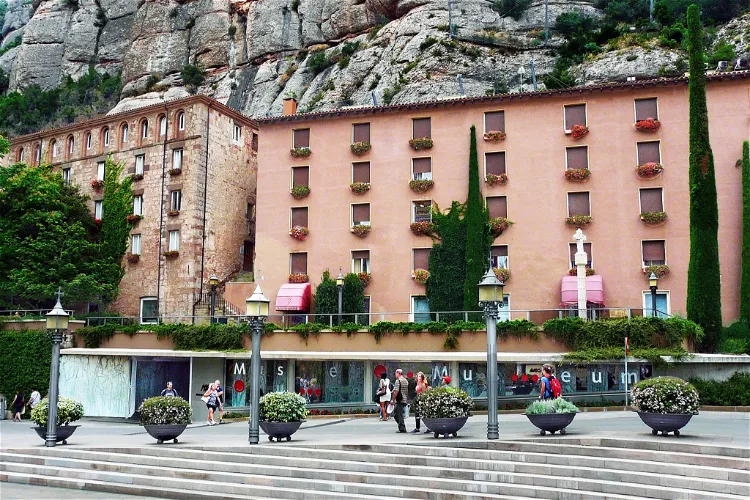
Museum of Montserrat
Monistrol de MontserratThe Museum of Montserrat is located within the Abbey of Montserrat, a thousand-year-old institution. It showcases a selection of the most outstanding artistic and archaeological heritage. This includes a wide range of collections, each unique and different, providing a comprehensive view of various historical periods and cultures.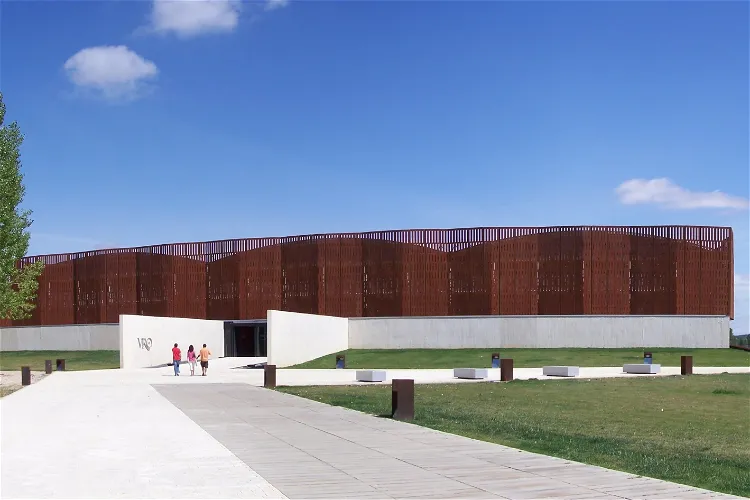
Roman Villa La Olmeda
Pedrosa de la VegaThe site of Roman Villa La Olmeda was declared a site of cultural interest on April 3, 1996. It spans two chronological phases: a villa from the 1st century, which was maintained until the end of the 3rd century, and the reconstruction of this villa in the 4th century, until it was destroyed and abandoned in the 6th century. This provides a fascinating insight into the evolution of Roman architecture and lifestyle over several centuries.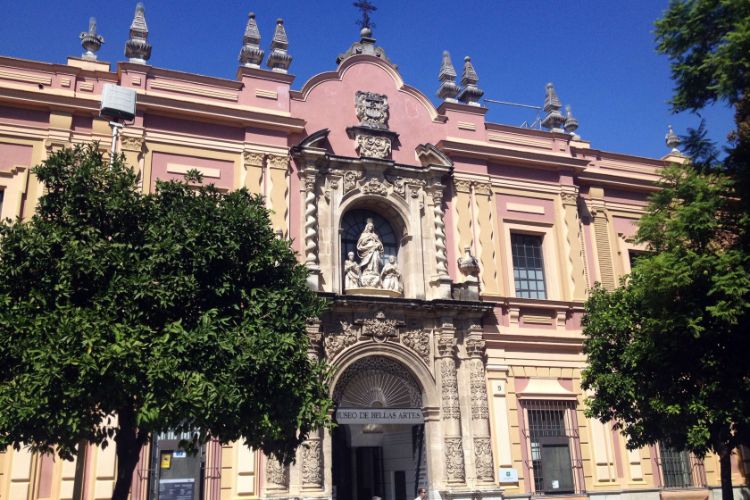
Museum of Fine Arts of Seville
SevilleThe Museum of Fine Arts of Seville is is an art museum in Seville that is considered one of the most important art museums in Spain. The museum holds a collection of mainly Spanish visual arts from the medieval period to the early 20th century, and is especially known for its baroque Sevillian paint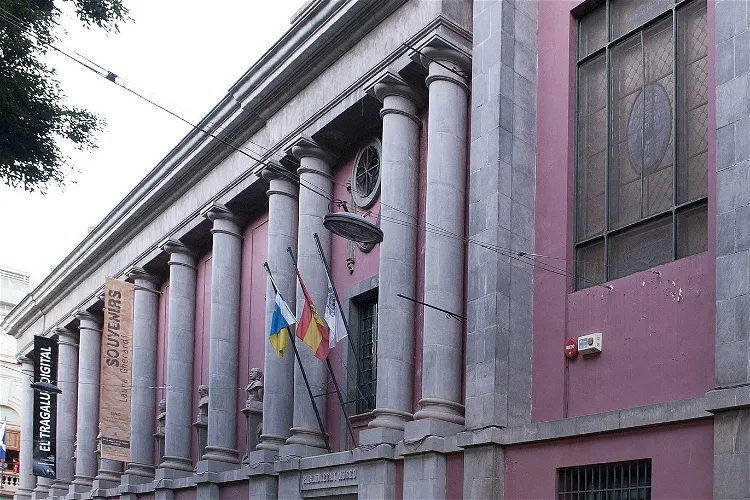
Municipal Museum of Fine Arts
Santa Cruz de TenerifeThe Municipal Museum of Fine Arts is situated in the city of Santa Cruz de Tenerife, Canary Islands, Spain. It is a part of the Autonomous Culture Organization of the Santa Cruz de Tenerife City Council. The museum is located at the rear of the building that was once the Convent of San Francisco, specifically on José Murphy Street, under the Plaza del Príncipe.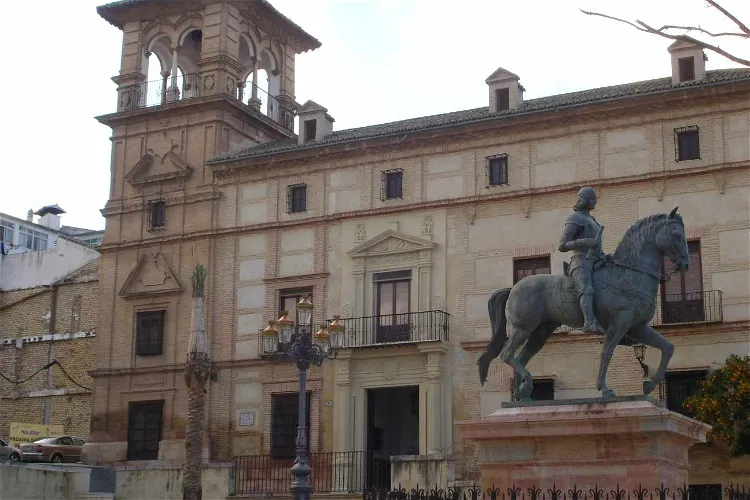
Municipal Museum of Antequera
AntequeraThe Municipal Museum of Antequera (MVCA) is a comprehensive museum that houses a diverse collection of fine arts, archaeological, and ethnological exhibits. Located in the city of Antequera, Spain, the museum offers a rich exploration of history from prehistoric times to the present day. It is a significant cultural institution in the region, providing visitors with a deep understanding of the area's historical and cultural heritage.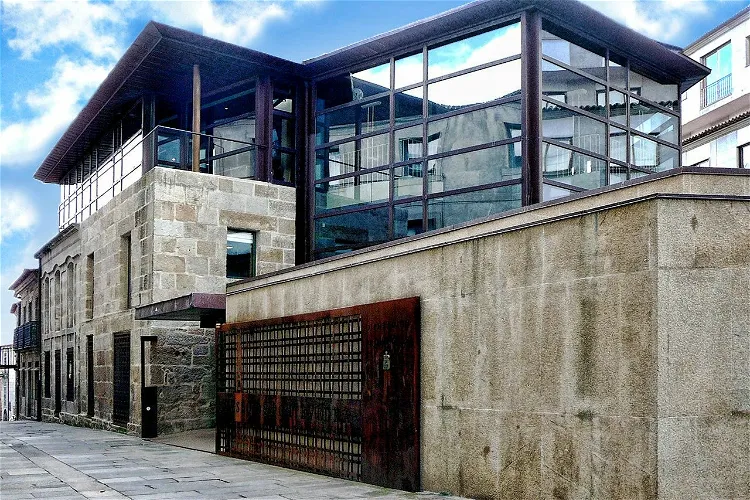
Pontevedra Museum
PontevedraThe Pontevedra Museum, previously known as the Provincial Museum of Pontevedra, is a significant cultural institution located in the Galician city of Pontevedra, Spain. It offers a wide range of art exhibits, with a special focus on the art of Galicia, contributing to the artistic and cultural development of the province.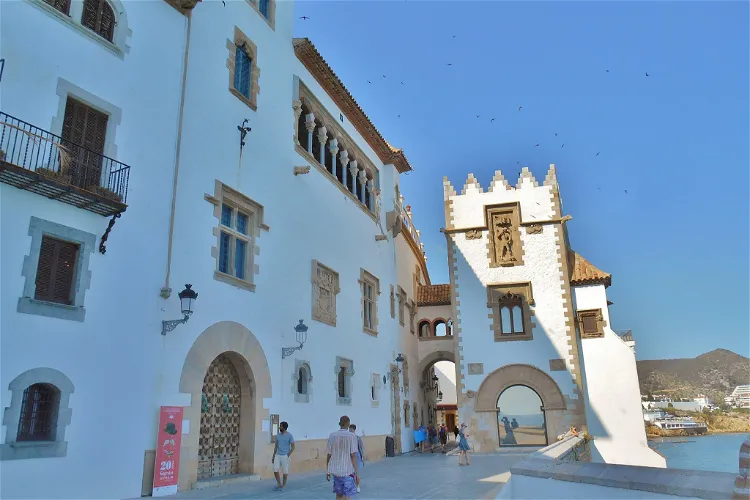
Maricel Museum
SitgesThe Maricel Museum, situated in the heart of Sitges, underwent a significant renovation and reopened its doors in 2015. This central location and its recent refurbishment make it an accessible and modern destination for tourists interested in art and history.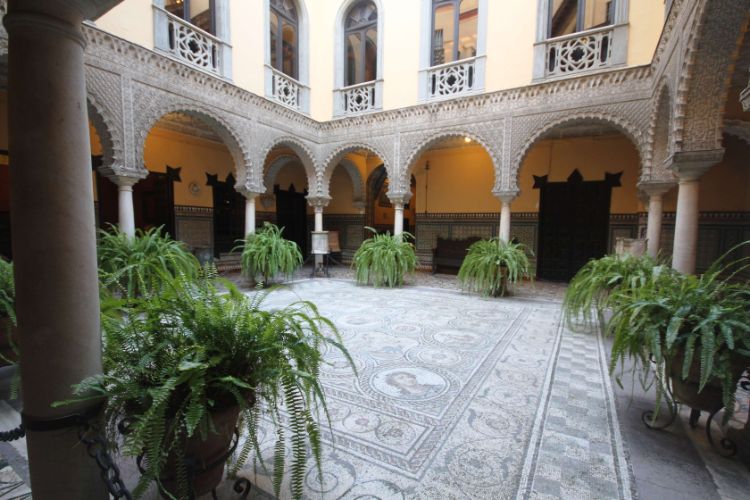
Museo Palacio de la Condesa de Lebrija
SevilleMuseo Palacio de la Condesa de Lebrija (Museum of the palace of the countess of Lebrija or palace of Lebrija) is a house museum/palace in Seville that dates from the 16th century. The museum houses an important art collection with Roman mosaics and other antiquities as well as Asian art, paintings b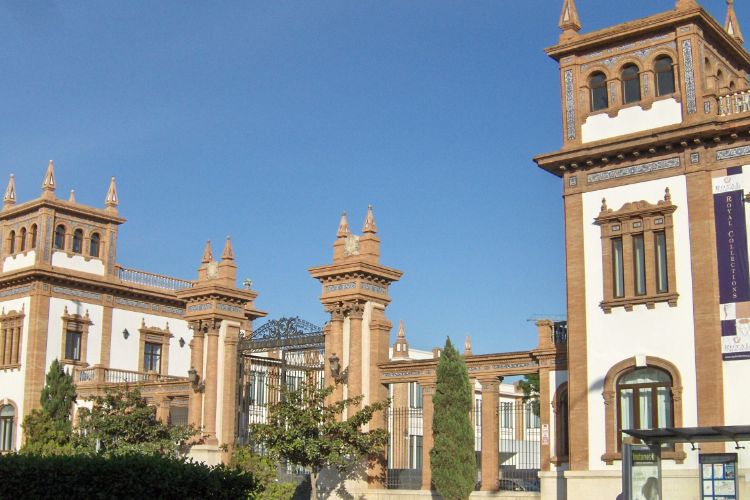
Coleccion del Museo Ruso
MálagaColeccion del Museo Ruso (Colección del Museo Ruso San Petersburgo Málaga) is housed in the building of the former Royal Tobacco Factory in Malaga. It is the first European subsidiary of the Russian institution. The museum shows permanent collections in their exhibitions on an annual or semi-annual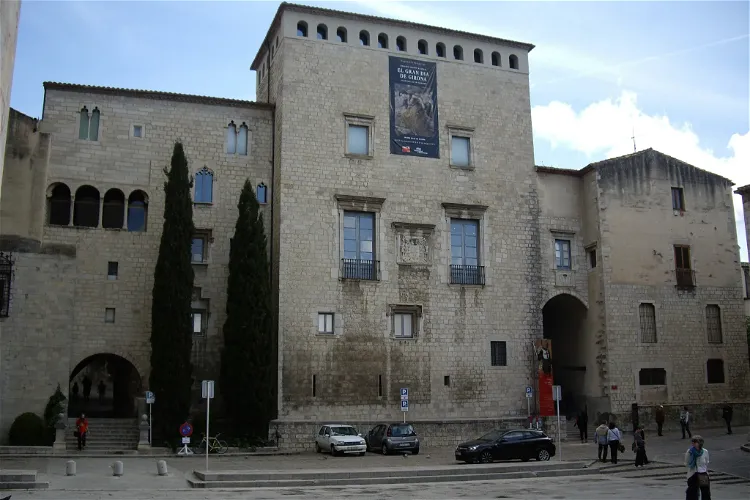
Girona Art Museum
GeronaThe Girona Art Museum, a public institution, was established in 1976. This was achieved by merging the collections of the provincial fine arts museum with those of the Girona Diocesan Museum. This merger resulted in a rich and diverse collection of artworks and artifacts, making the museum a significant cultural institution in the region.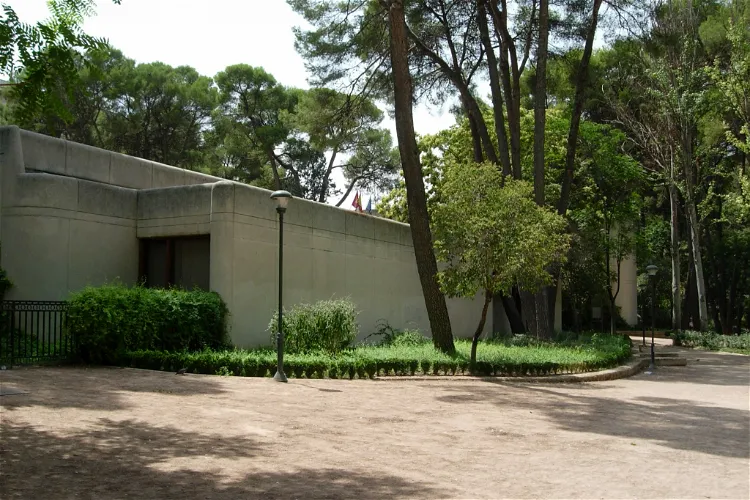
Albacete Provincial Museum
AlbaceteThe Albacete Provincial Museum, located in Albacete, Spain, is a renowned institution dedicated to the preservation and exhibition of archeology and fine art. The museum offers a unique opportunity to explore the rich cultural heritage of the region through its diverse collections.- 31
Sa Bassa Blanca Museum
AlcudiaThe Fundaci n Yannick y Ben Jakober, situated near Alcudia Mallorca Spain, was established in 1993. It is a private non-profit cultural institution that primarily focuses on the preservation and restoration of Spanish Historical Heritage. Additionally, it promotes the development of fine arts, including painting and sculpture. The foundation is known for its collection of Old Master Portraits of Children from the 16th to the 19th century, which is displayed to the public in an old water reservoir. 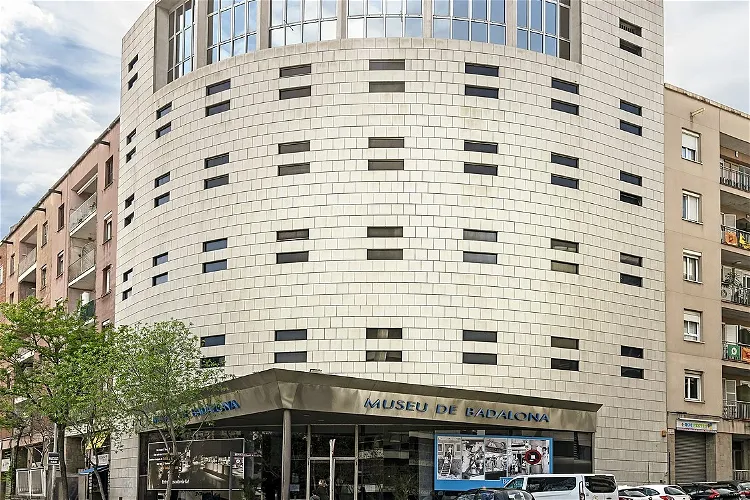
Badalona Museum
BadalonaThe Badalona Museum was founded in 1955, following the discovery of Roman baths by the local archaeologist and historian, Josep M. Cuyàs i Tolosa. This marked the beginning of the museum's journey, which has since become a significant cultural and historical site in the city.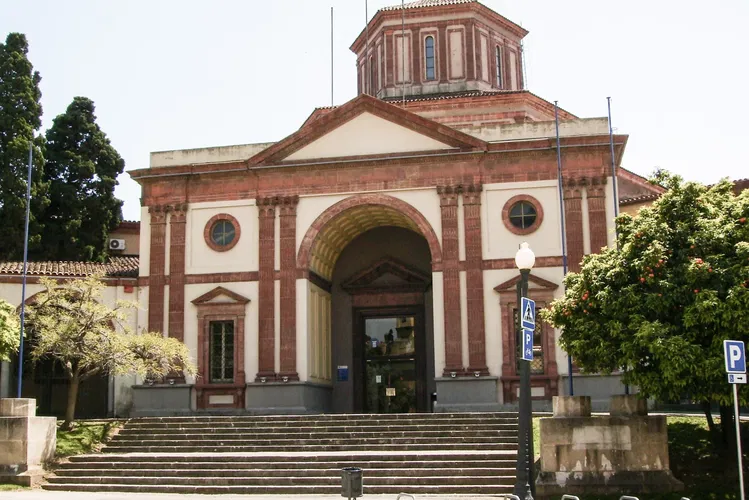
Ullastret
UllastretThe modern population of Ullastret is situated near the ancient Indika, the Iberian city of Ullastret. This city was once the capital of the Indigetes, an ancient Iberian tribe. The town's economy is primarily agricultural and tourist-based, with a population of 288 inhabitants.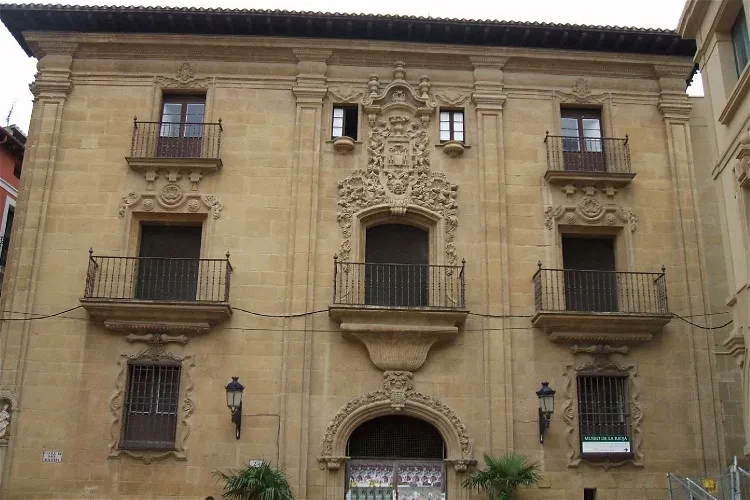
Museum of La Rioja
LogroñoThe Museum of La Rioja is housed in the Espartero Palace in Logroño, a Baroque construction from the 18th century. This palace was the residence of General Baldomero Espartero after he retired from politics and married María Jacinta Martínez. The palace's rich history and architectural beauty add to the overall experience of visiting the museum.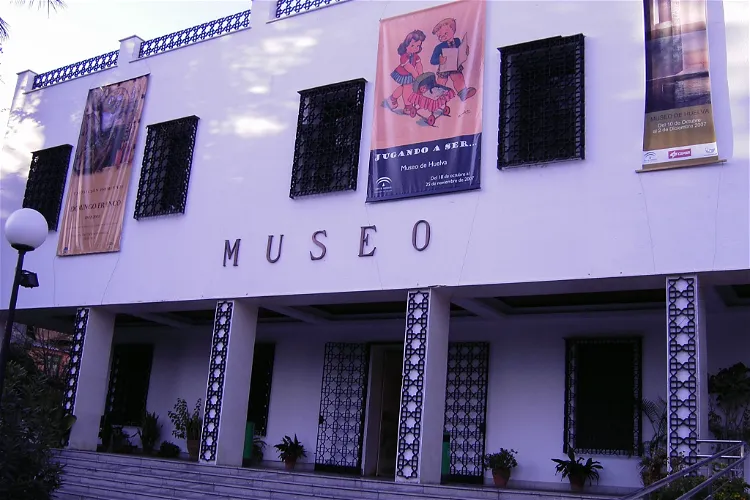
Museum of Huelva
HuelvaThe Museum of Huelva is divided into three distinct sections: Fine Arts, Archaeology, and Ethnology. Each section offers a unique insight into the rich cultural and historical heritage of the region. The museum has been declared a Cultural Interest Asset, with the category of Monument, further emphasizing its importance and value.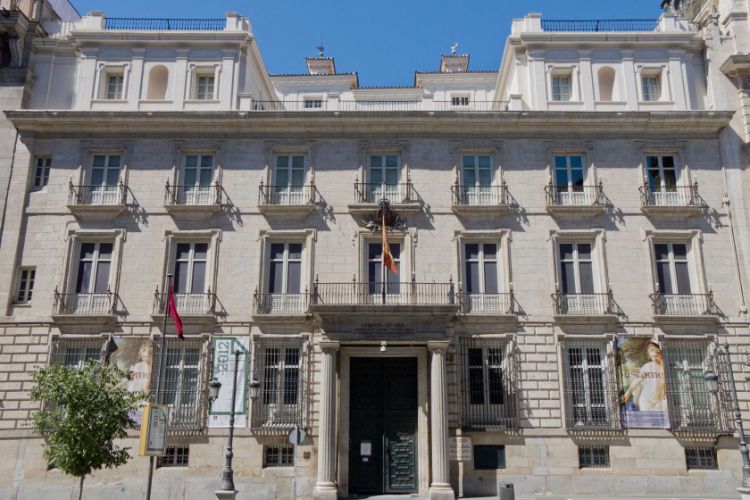
Royal Academy of Fine Arts of San Fernando Museum
MadridThe Royal Academy of Fine Arts of San Fernando is the academy where many notables such as Picasso, Dalí or Goya studied. The academy has been transformed into an exhibition space and now serves as an art museum: the Royal Academy of Fine Arts of San Fernando Museum. One of the higlights of this pla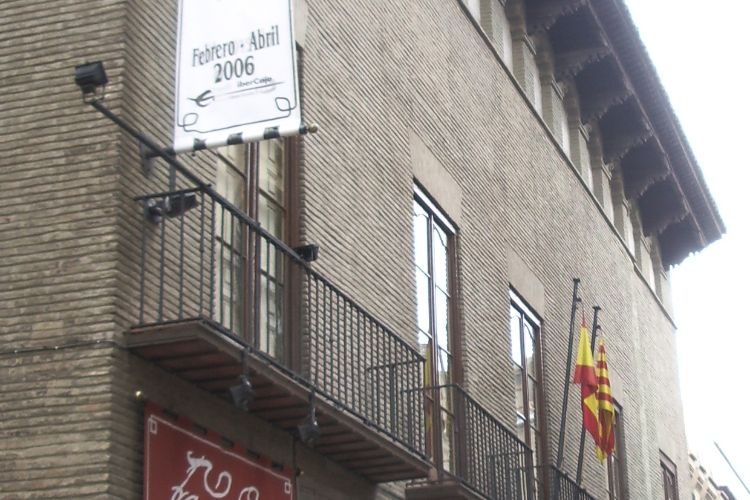
Museo Goya Colección Ibercaja
ZaragozaMuseo Goya Colección Ibercaja (The Goya Museum - Ibercaja Collection - Camón Aznar Museum) is a museum of fine arts in Zaragoza, housed in the Pardo Renaissance palace. The museum houses more than 1,000 works, of which around 500 are exhibited in the permanent exhibition. The collection of works of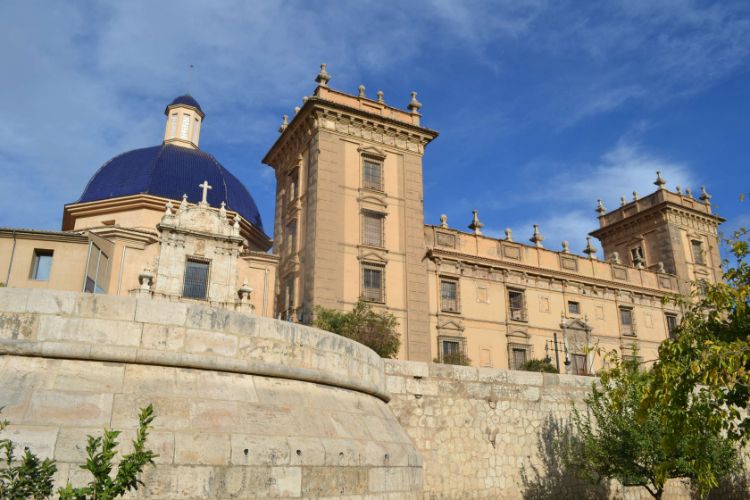
Museo de Bellas Artes de Valencia
ValenciaMuseo de Bellas Artes de Valencia is one of the most prominent art museums in Valencia and is housed in the St. Pius V Palace. The museum holds a collection that mainly consists of primitive Valencian masters, but also examples of contemporary art. Highlights of the exhibition include paintings by G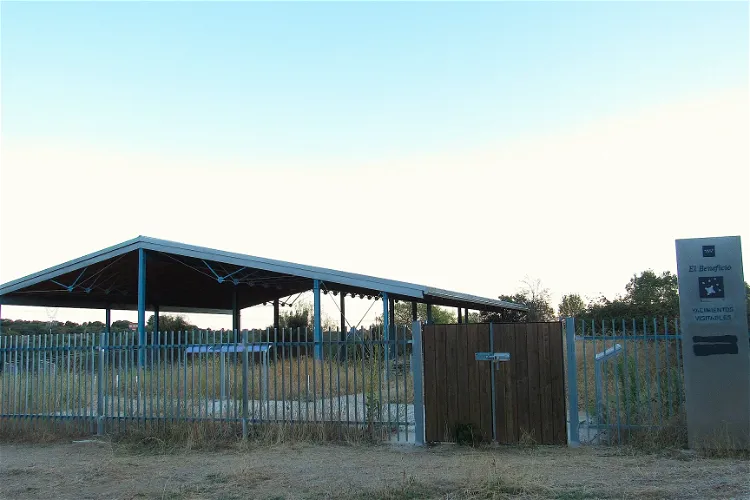
Roman Inn
Collado MedianoMiaccum, also known as Miacum, is an ancient Roman mansion that holds historical significance. It is situated on the road between Segovia and Titulciam, and its existence is documented in the Itineraries of Antoninus. This location offers a glimpse into the Roman era and the architectural style of that period.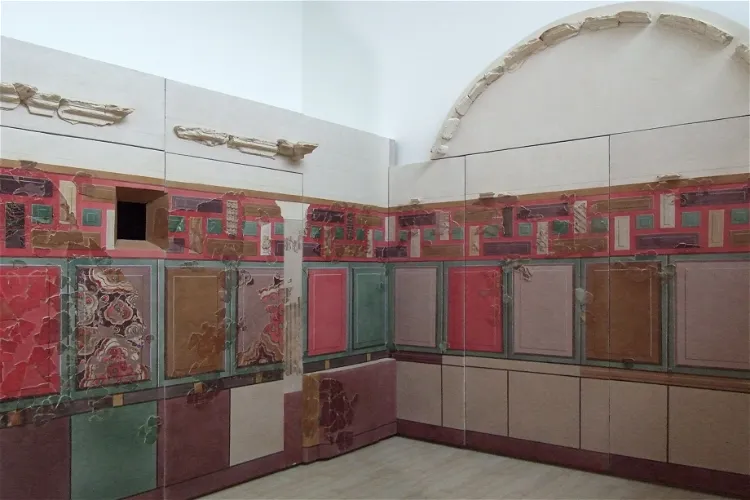
Calatayud Museum
CalatayudThe Calatayud Museum is situated in the Spanish town of Calatayud, specifically at Santa Teresa square, no. 3, adjacent to the Terrer Gate. This location is easily accessible and provides a central point for tourists to start their exploration of the town.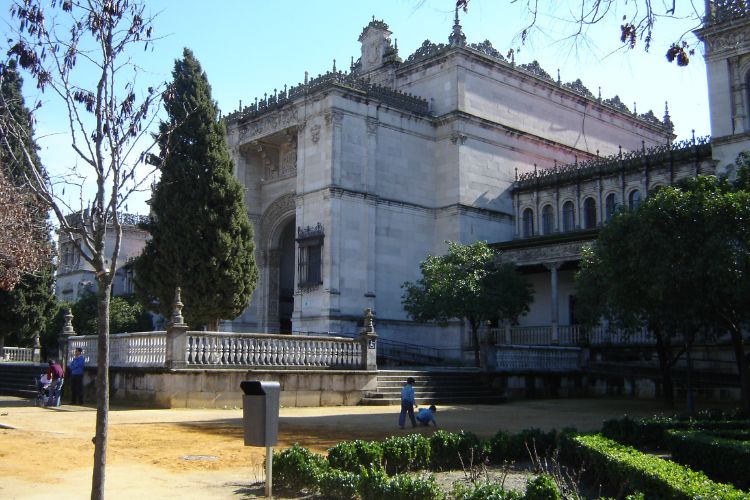
Archaeological Museum of Sevilla
SevilleThe Archaeological Museum of Sevilla is a history museum in Seville that is housed in a Neo-Renaissance building constructed for the Latin American Expo of 1929. It holds and displays archaeological discoveries from the prehistoric and Roman periods. Its main focus is the Roman period, but there are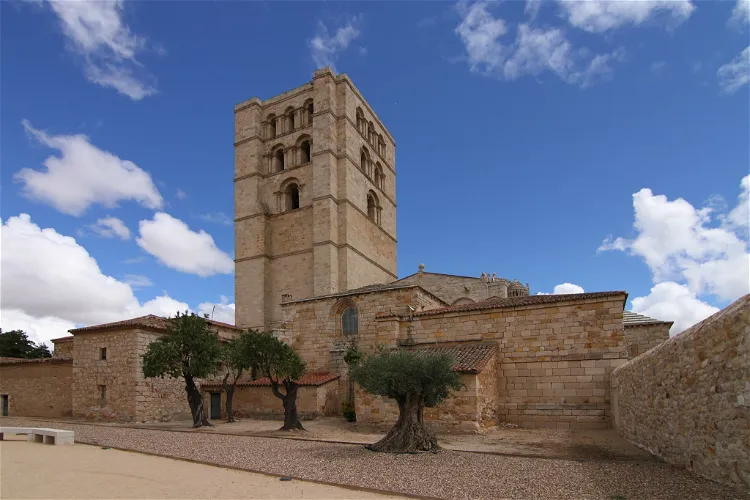
Zamora Cathedral Museum
ZamoraThe Zamora Cathedral Museum, the main museum of the Zamora diocese, was inaugurated in 1926. Its primary purpose is to house and display works from the Cathedral and other parishes of the diocese to the public. This museum is a significant part of the cultural and historical heritage of the region, offering visitors a chance to explore and appreciate the rich artistic legacy of the diocese.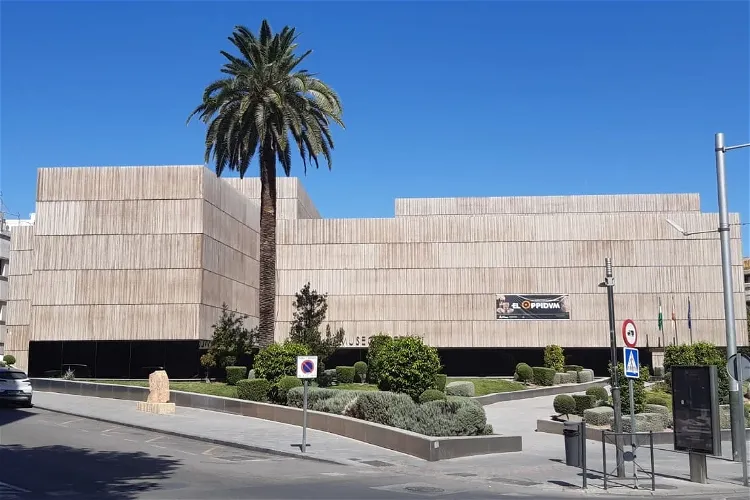
Iberian Museum
JaénThe Iberian Museum, situated in the city of Jaén, Spain, is home to an impressive collection of Iberian art. This collection primarily consists of pieces from the existing collection at the Jaén Museum and other funds, as well as new archaeological finds. The museum aims to become an international reference point for Iberian art.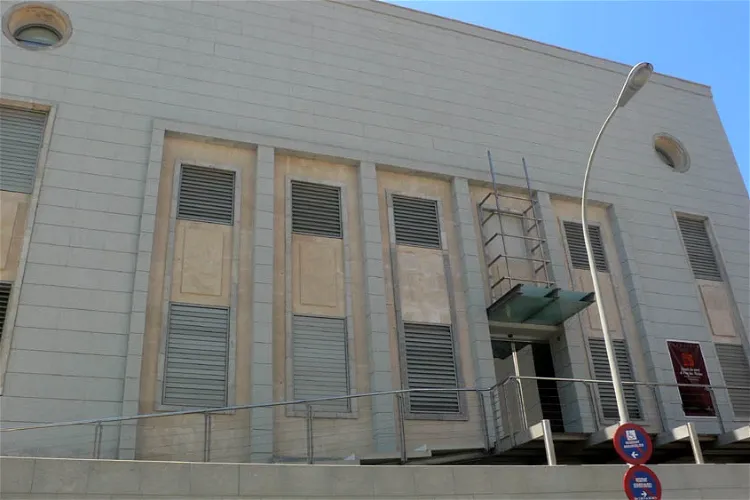
Ibiza and Formentera's Archaeological Museum
Dalt Vila - Old Town Ibiza CityMuseum opened in 1907, exhibits the remains of Ibiza and Formentera's historic past.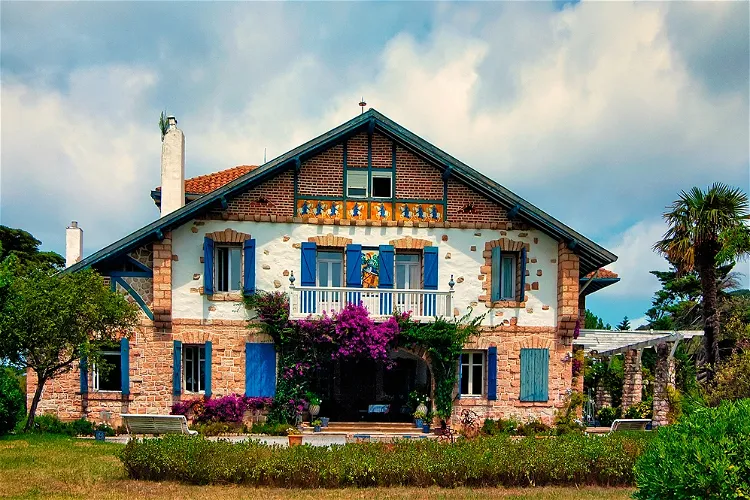
Zuloaga's House-Museum
ZumayaThe Ignacio Zuloaga Museum is a unique destination for art lovers. Located within the historic Pedraza Castle in the province of Segovia, Castilla y León, the museum is dedicated to the works of the renowned Basque painter Ignacio Zuloaga. Visitors can explore the rich collection of Zuloaga's works, gaining insight into his artistic journey and the cultural context in which he created his masterpieces.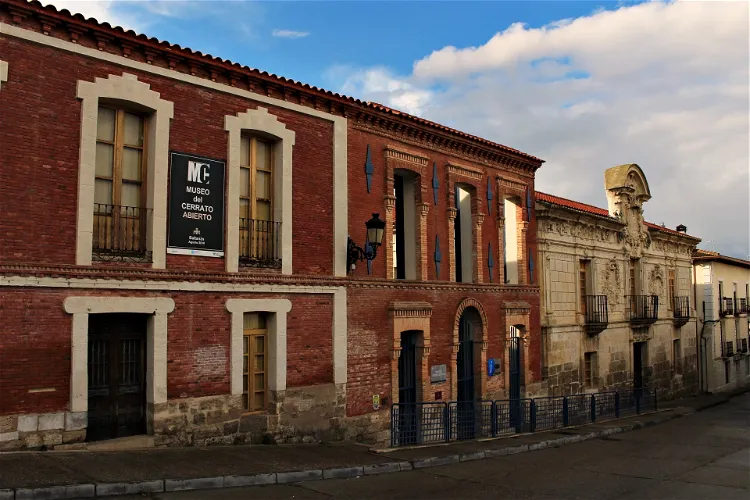
Cerrato Castellano Museum
BaltanásThe Cerrato Castellano Museum is a public institution situated in the town of Baltanás, within the Province of Palencia, in the Autonomous Community of Castilla y León, Spain. This museum serves as a place for the interpretation of the Cerrato region, offering visitors a deep insight into the area's history, culture, and landscape.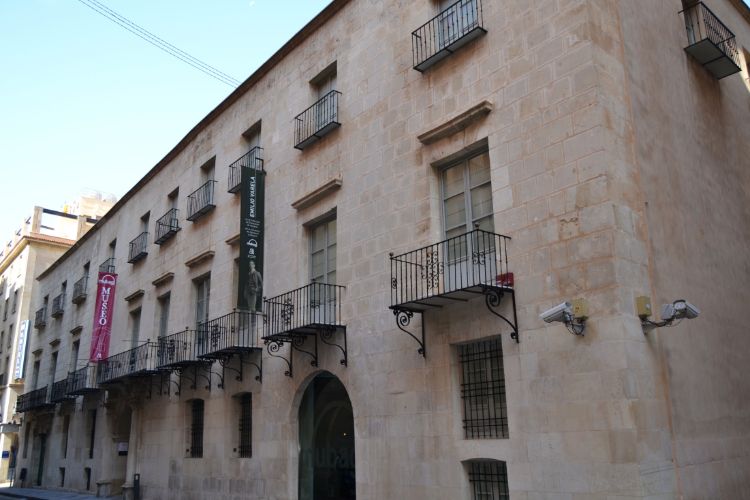
Museo de Bellas Artes Gravina - MUBAG
AlicanteMuseo de Bellas Artes Gravina (MUBAG, The Museum of Fine Arts Gravina) is an art museum in Alicante that is housed in the palace of the Count of Lumiares, a four-storey building built between 1748 and 1808. This museum holds a collection of paintings and sculptures from Alicante, from the 16th centu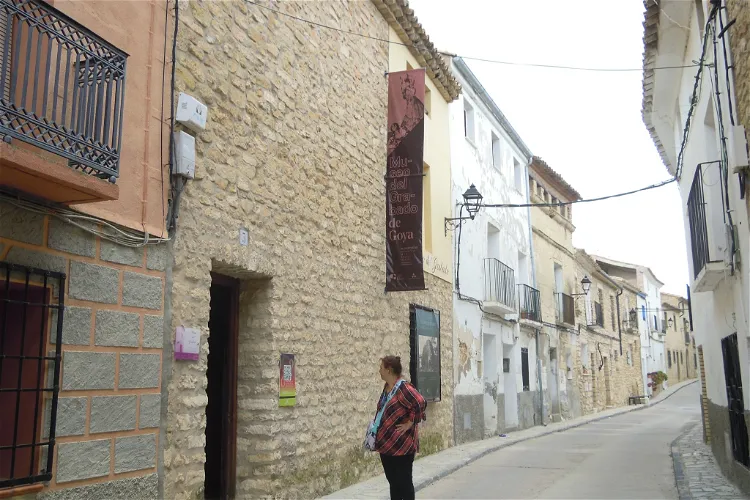
Engraving Museum
FuendetodosThe Museo del Grabado de Goya, located in Fuendetodos, Zaragoza, Spain, is a museum dedicated to the engravings of Francisco de Goya. It is situated right next to the birthplace of the painter, making it a significant location for those interested in the life and works of Goya.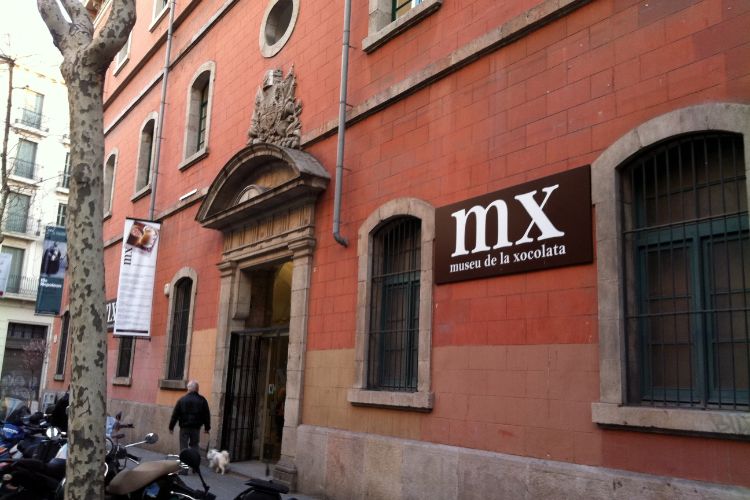
Museu de la Xocolata
BarcelonaIn Museu de la Xocolata you can admire chocolate sculptures as well as replicas of buildings. You will also learn about the history of chocolate and its importance for the ancient cultures of Latin America. Additionally, the museum shows the manufacturing of chocolate. Various events and workshops a
Museo del Foro de Caesaraugusta
ZaragozaMuseo del Foro de Caesaraugusta (The Forum Museum of Caesaraugusta) is a museum in Zaragoza that exhibits the remains of the forum of the ancient Roman city of Caesaraugusta. It is located under the Plaza de la Seo. The museum exhibits archaeological remains excavated during 1988 and 1989 belonging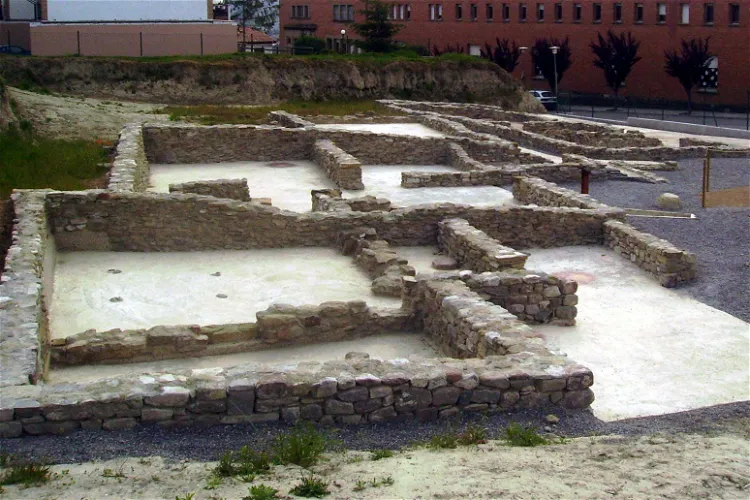
El Camp de les Lloses Interpretation Centre and Site
TonaEl Camp de les Lloses is a historical site that was once a Roman settlement. It is located in the area around present-day Tona, a town in the Osona region of Catalonia, Spain. The settlement was founded between the 2nd and 1st centuries BC, making it a significant part of the region's ancient history.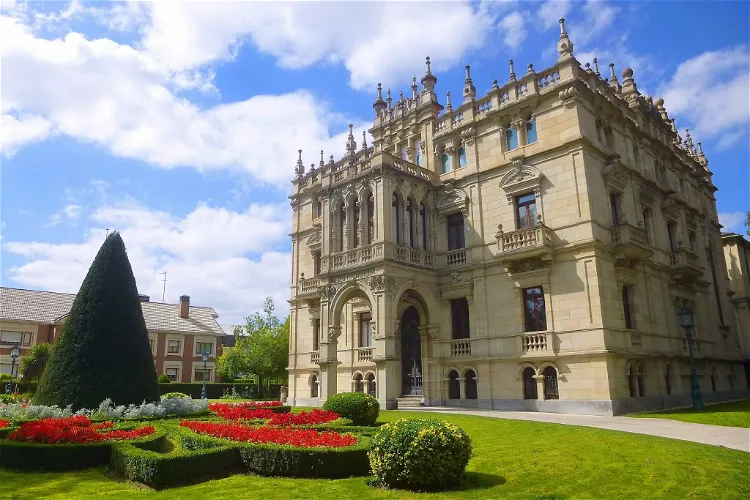
Museum of Fine Arts
Vitoria-GasteizThe Museum of Fine Arts of Álava, situated in Vitoria-Gasteiz, the capital of the Basque Country in Spain, is a hub for Spanish art from the 18th to the 20th century. The museum has a special focus on Basque art from the period of 1850 to 1950, providing a comprehensive view of the region's artistic evolution during this time.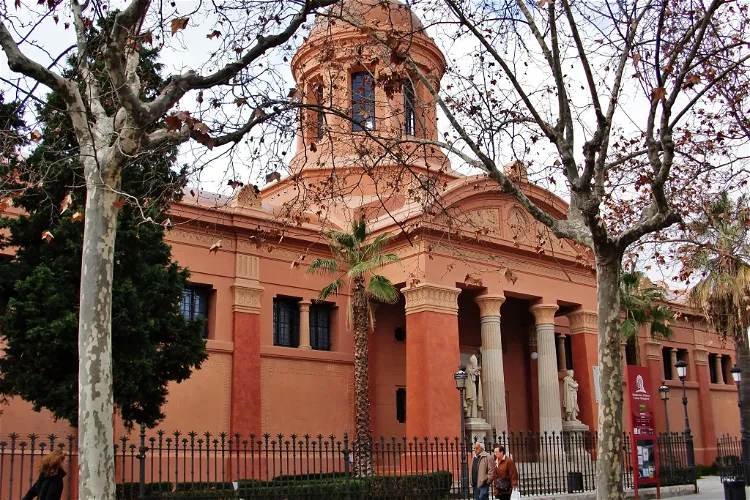
Biblioteca Museu Víctor Balaguer
Vilanova y GeltrúThe museum is home to the legacy of its founder, Víctor Balaguer. This includes a vast collection of books and various works of art that he amassed throughout his life. Visitors can explore a wide range of paintings, sculptures, ceramic and glass pieces, and ethnographic objects from distant cultures.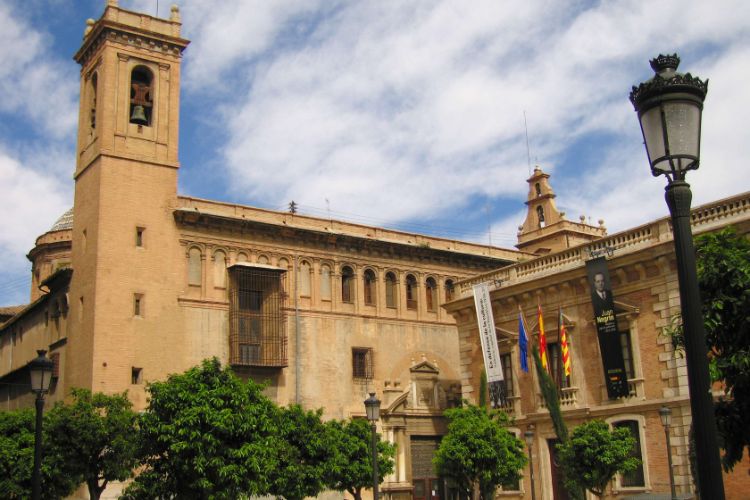
Museo del Patriarca
ValenciaThe Patriarca, Real Colegio and the Seminario del Corpus Christi are a church, a seminary and a college respectively. Work on the buildings began in 1586 and finished in 1610. The Patriarca in Valencia is a good examples of Renaissance architecture. In the Museo del Patriarca (the Musuem of the Patr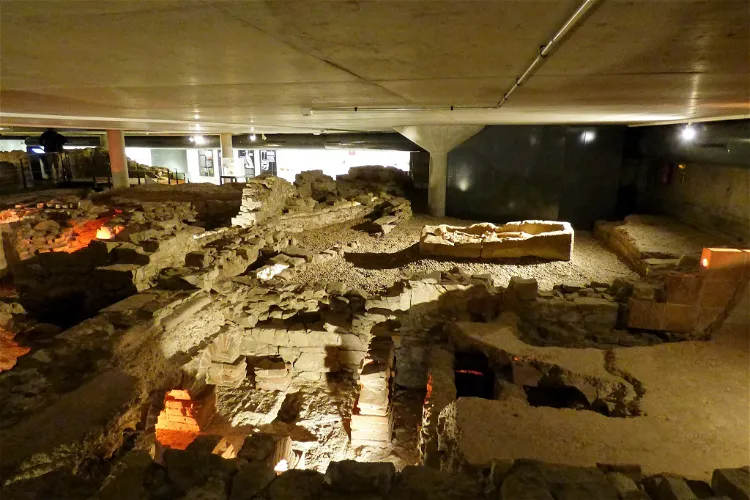
Campo Valdés Roman Baths
GijónThe Campo Valdés Roman Baths, located in the Cimadevilla neighborhood of the Asturian town of Gijón, are a significant historical site. These public baths from the Roman era offer a glimpse into the past and are an integral part of the city's rich history.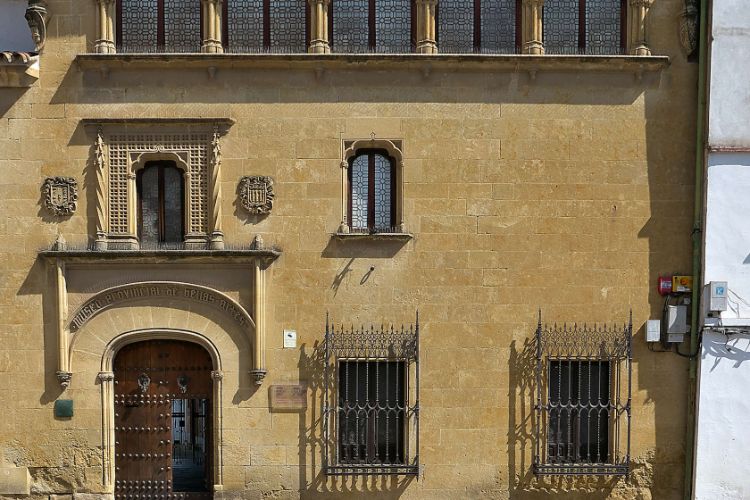
Museum of Fine Arts of Córdoba
CórdobaThe Museum of Fine Arts of Córdoba is housed in the building of the former Hospital of the Charity, which also houses the Museum Julio Romero de Torres. The exhibitions in the Museum of Fine Arts of Córdoba show the artistic activity and movements in Córdoba from the 14th century to the present. Bec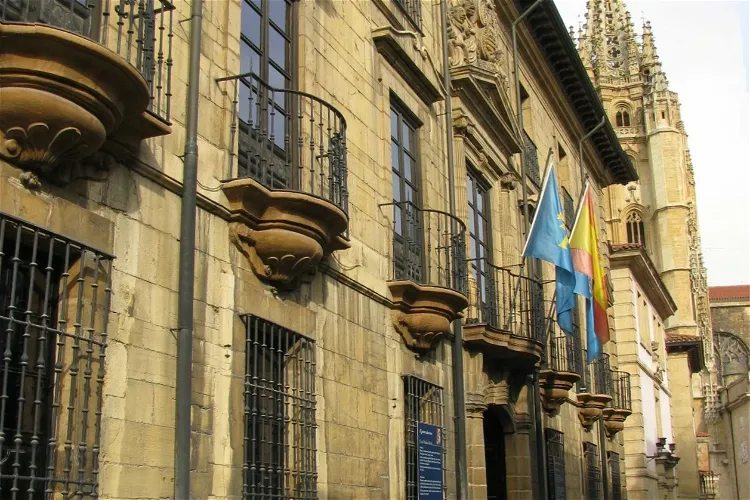
Museum of Fine Arts of Asturias
OviedoThe Museum of Fine Arts of Asturias, inaugurated on May 19, 1980, is home to a vast collection of works spanning from the Middle Ages to the Contemporary Age. This broad timeline allows visitors to experience a comprehensive journey through art history, from the 14th to the 21st Century.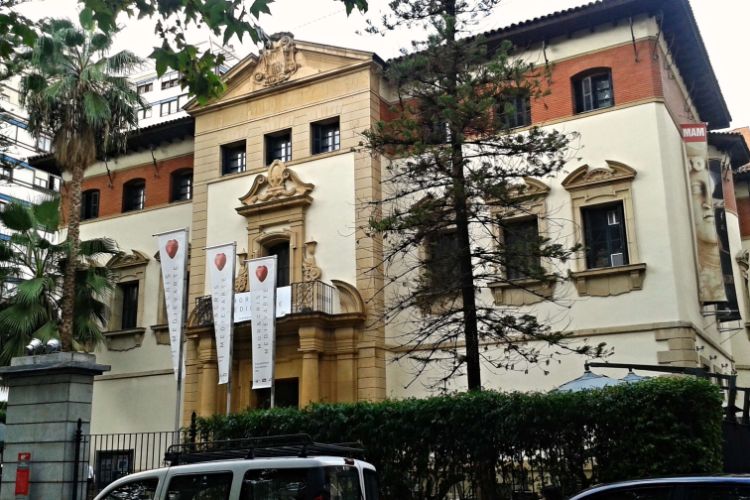
Museo de Arqueología
MurciaThe Archaeological Museum of Murcia (Museo de Arqueología, MAM) is a history museum in Murcia, which is home to 16 exhibition rooms with archaeological remains from different sites in the Region. On the ground floor the objects of Prehistory (from the Paleolithic to the Bronze Age) are exhibited, wh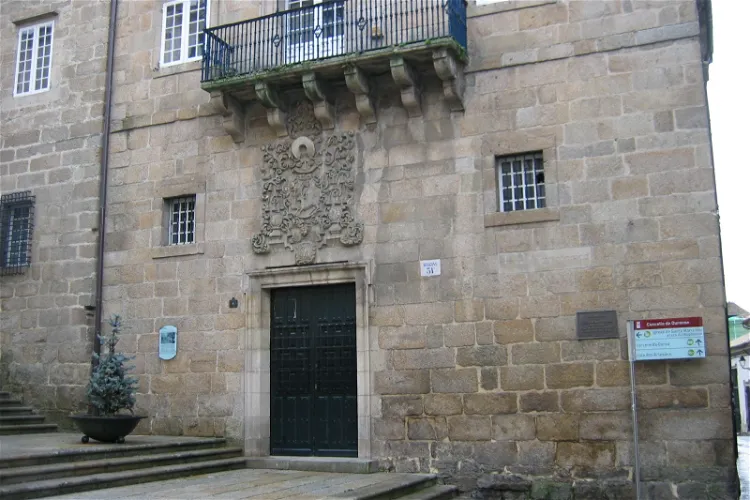
Museo Arqueolóxico Provincial de Ourense
OurenseThe Museo Arqueológico Provincial de Orense is a provincial museum situated in the city of Orense. Its primary focus is to narrate the history and culture of the region. The museum is a great place for tourists who are interested in learning about the history and culture of Orense and its surrounding areas.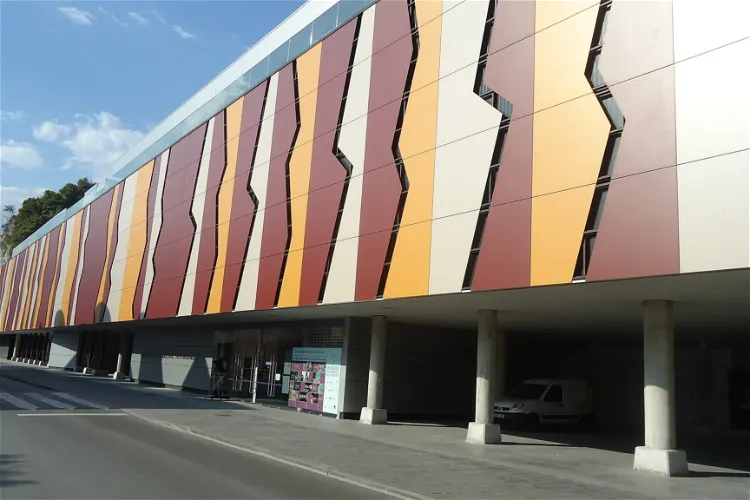
Rock Art Center of Tito Bustillo
RibadesellaThe Tito Bustillo Cave, also referred to as Ramu Cave, is a significant prehistoric site situated in the quaint town of Ribadesella, within the autonomous community of Asturias in Spain. This cave is a testament to the rich history of the region, offering a glimpse into the lives of the Neanderthals and Homo sapiens who once inhabited it.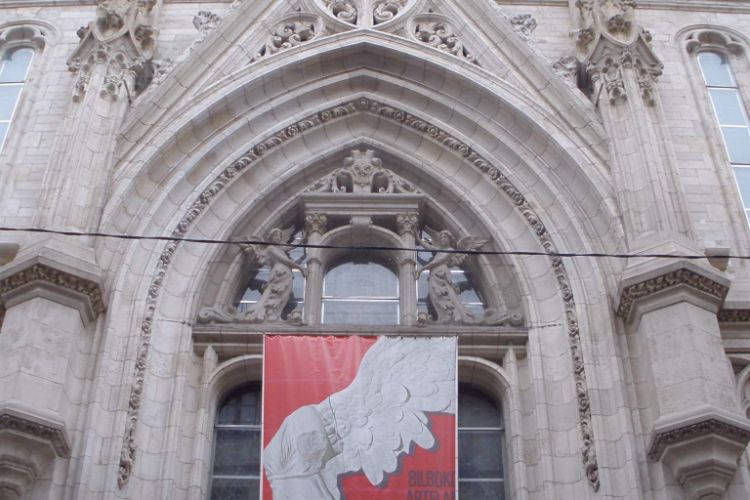
Reproductions Museum Bilbao
BilbaoThe Reproductions Museum Bilbao (Museo de Reproducciones de Bilbao) is one of the oldest museums in Bilbao and aims to reproduce classic works of art. It includes works reproduced from museums such as the Louvre, the Berlin Museum, the Vatican Museums or the British Museum. Examples of art works dis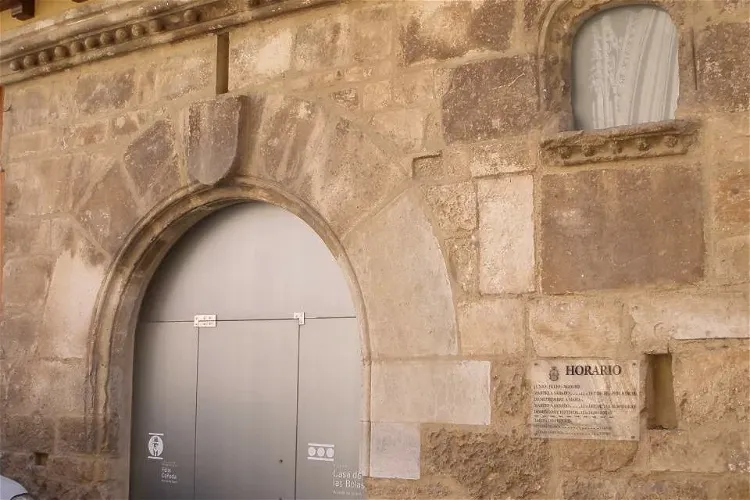
Casa de las Bolas Museum
Aranda de DueroThe Casa de las Bolas Museum in Aranda de Duero, Burgos, is home to a collection of European paintings spanning from the 17th to the 20th century. These works were generously donated to the City Council by mining engineer Félix Cañada Guerrero, who spent his childhood in the city. This collection provides a unique insight into the evolution of European art over several centuries.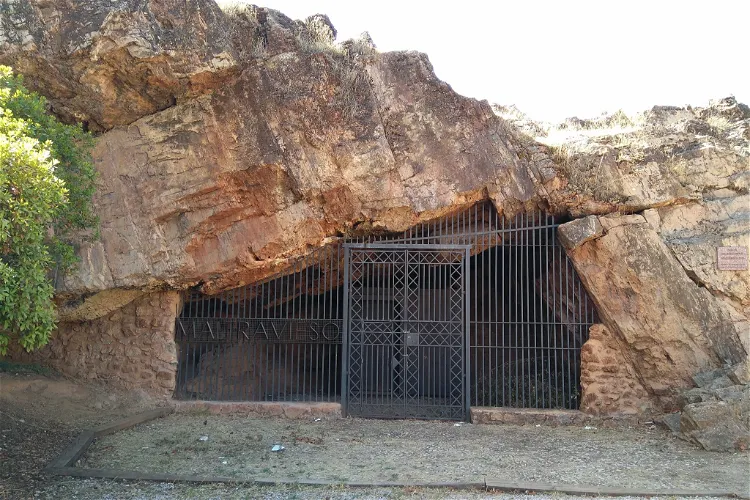
Cave of Maltravieso
CáceresThe Cave of Maltravieso is home to a significant collection of cave art. This includes a total of 71 hand stencils, which were enumerated in the 1990s using ultraviolet photography. In addition to these hand stencils, the cave also features linear designs and some animal paintings, offering a rich visual experience for visitors.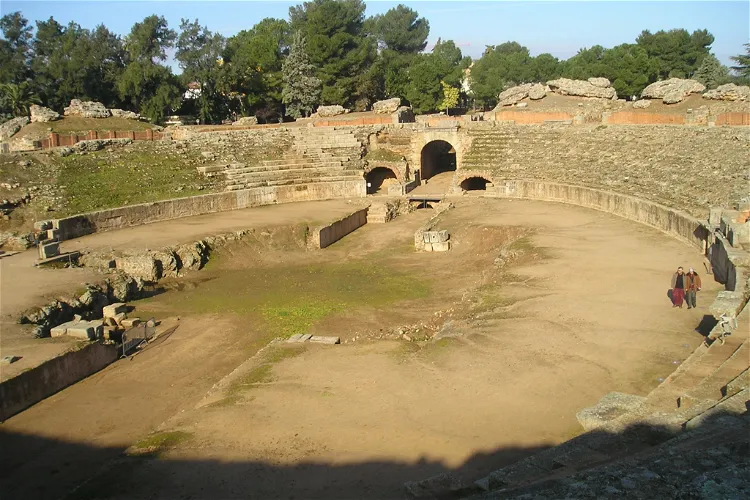
Roman Circus Interpretation Center
MeridaThe Roman Circus of Mérida holds a significant place in history as it is believed to be the first of its kind built in Roman Spain. Constructed around 20 AD during the reign of Roman Emperor Tiberius, this ancient structure offers a glimpse into the grandeur of Roman architecture and the cultural practices of the time.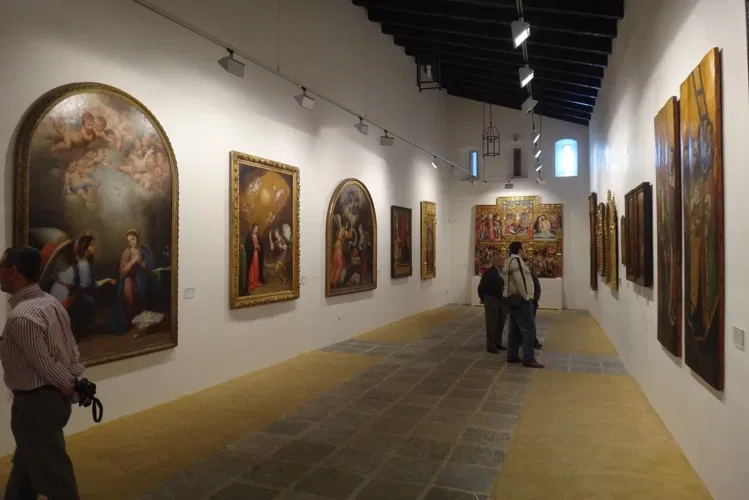
Bodegas Tradicion
Jerez de la FronteraThe Pinacoteca Rivero, also known as the Pinacoteca de Bodegas Tradición, is a permanent exhibition of Spanish works from the Joaquín Rivero Collection. These works are displayed at the Bodegas Rincón Malillo, which is part of the Bodegas Tradición in Jerez de la Frontera, Andalusia, Spain. This collection is considered one of the most important private collections in Andalusia and among the most relevant in Spain.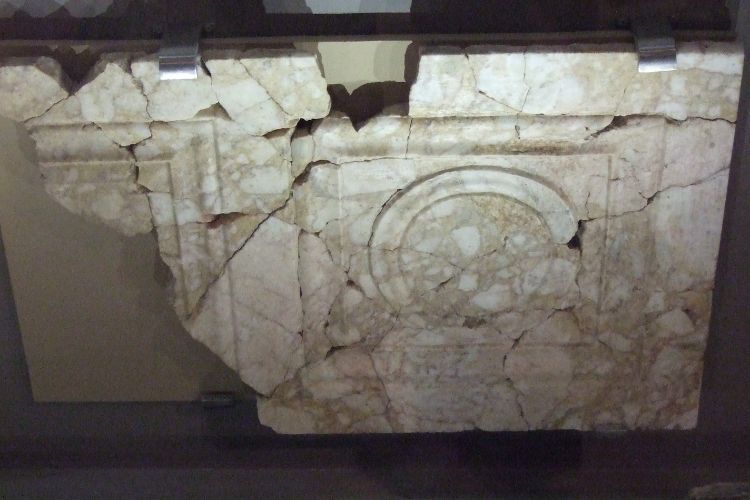
Museo De Las Termas Públicas De Caesaraugusta
ZaragozaMuseo De Las Termas Públicas De Caesaraugusta (The Museum of the Public Baths of Cesaraugusta) is a museum that shows the ancient Roman baths in the city of Caesaraugusta, the current Zaragoza. Among the remains that are exhibited in the museum are the bases of some columns as well as part of the de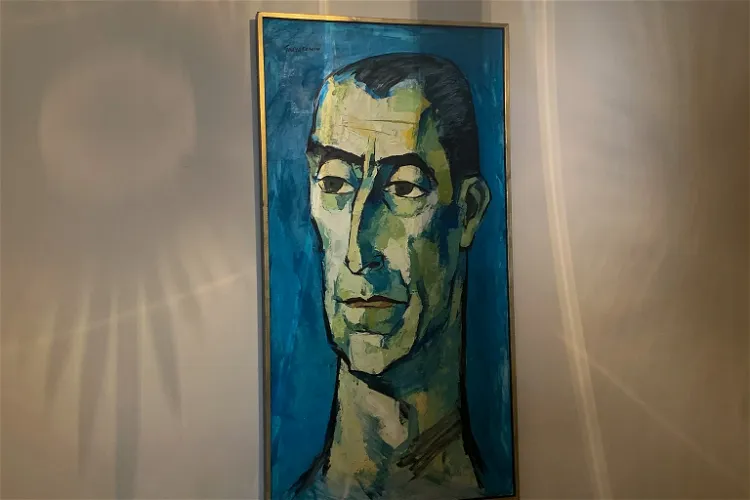
Guayasamín House-Museum
CáceresThe Guayasamín House-Museum is situated in the Spanish city of Cáceres. This location is significant as it was the first European museum dedicated solely to the painter Guayasamín and pre-Columbian art. It's a place where visitors can immerse themselves in the rich history and culture of Latin American art.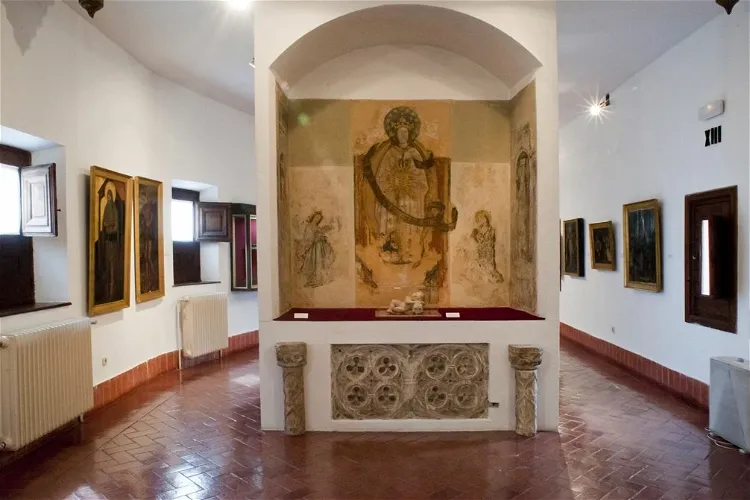
Museo Arqueológico de Valladolid
ValladolidThe Valladolid Museum, established in 1879, is housed in the Fabio Nelli Palace in Valladolid. This historic location has been the museum's home since the 1960s, providing a unique setting for the museum's extensive collections.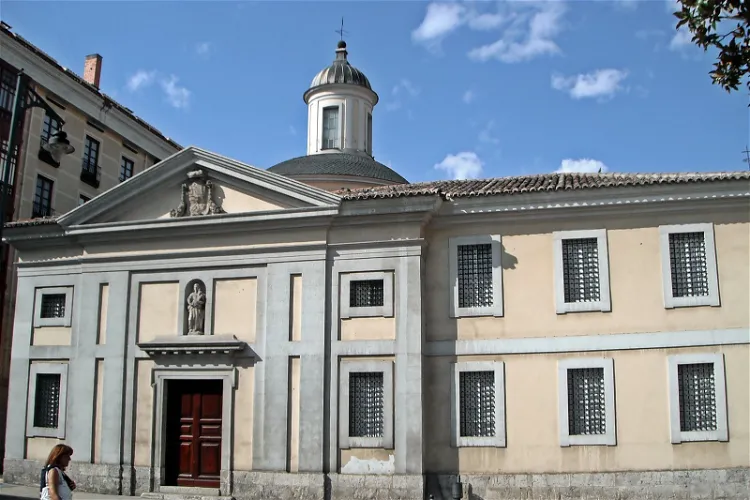
Real Monasterio de San Joaquín y Santa Ana
ValladolidThe Museum of the Monastery of San Joaquin and Santa Ana is a sacred art museum located within the church of the Royal Monastery of San Joaquin and Santa Ana in Valladolid, Spain. This museum houses valuable pieces of Spanish Baroque sculpture and is a significant cultural and historical site.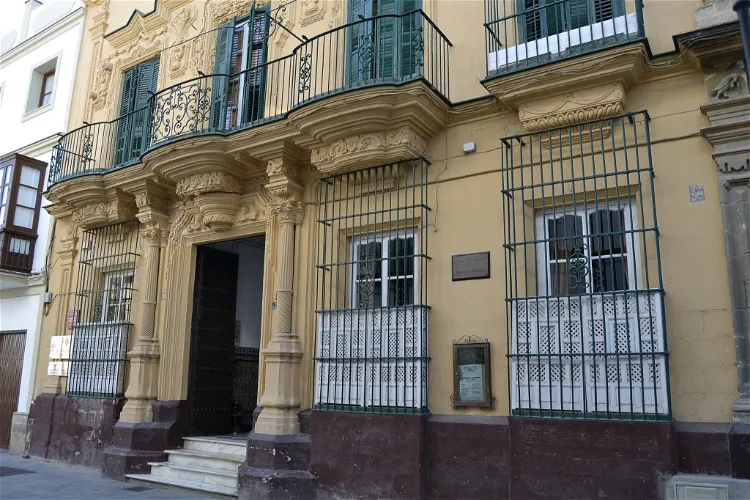
Museo Arqueológico Municipal de El Puerto de Santa María
El Puerto de Santa MaríaCurrently, the museum is located in a neoclassical building from 1753 in the Barrio Alto. Here, visitors can view a variety of exhibits, including Visigothic pieces, items from the Andalusian farmhouses of El Puerto, and ceramics from the 16th and 17th centuries. The building itself, with its historical architecture, adds to the overall experience of the museum visit.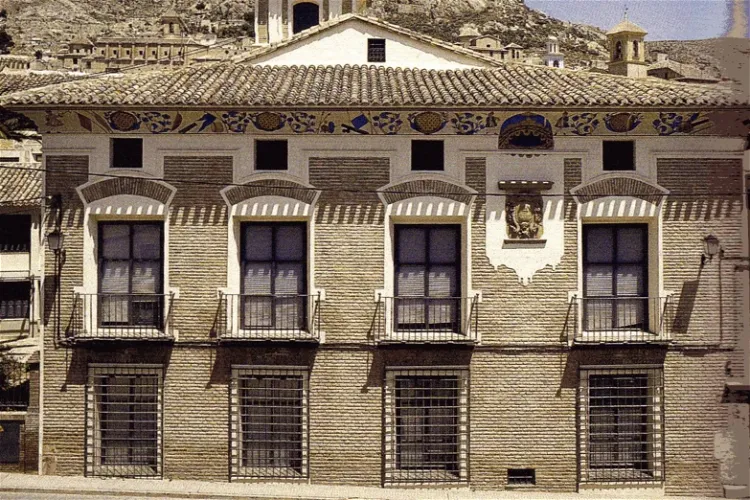
Cigarralejo Museum of Iberian Art
MulaThe Cigarralejo Museum of Iberian Art, located in Mula, Murcia, Spain, is home to a significant collection of archaeological materials from the Iberian period, specifically from the 4th to the 1st century BC. All these artifacts originate from the Iberian complex of El Cigarralejo, making the museum a rich source of historical and cultural knowledge.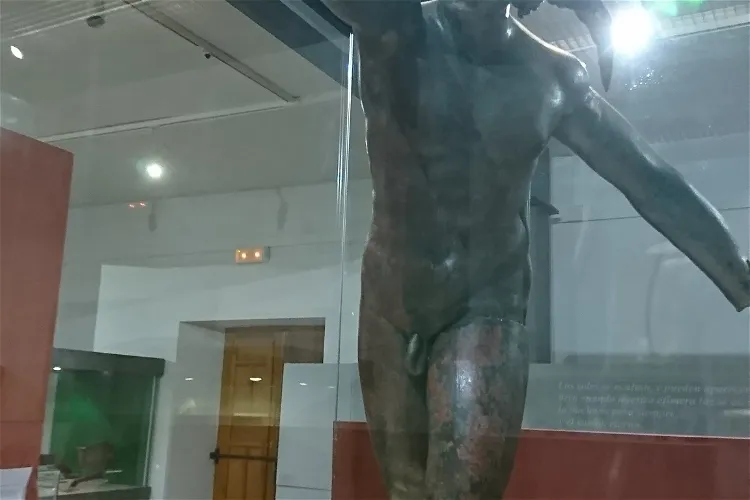
Historical Archaeological Museum of Almedinilla
AlmedinillaThe museum was officially opened in 1999 and occupies a space of 1200 square meters. The exhibition space is divided into three rooms: Sala del Aceite, Sala Íbera, and Sala Romana. Each room is dedicated to a specific period or theme, providing visitors with a comprehensive understanding of the region's history and culture.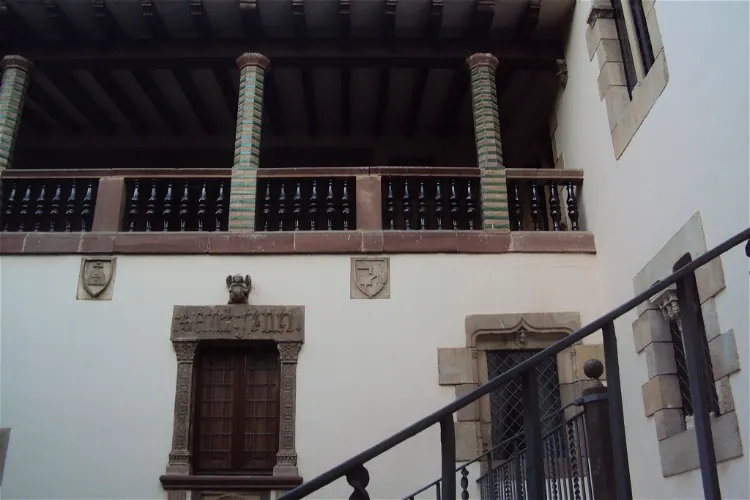
L'Enrajolada Santacana House-Museum
MartorellL'Enrajolada-Casa Museo Santacana, situated in Martorell, a province of Barcelona, is recognized as one of the oldest museums in Catalonia, Spain. The museum was established in 1876 by Francesc Santacana i Campmany and was later continued by his grandson, Francesc Santacana i Romeu. This historical establishment offers a glimpse into the rich cultural heritage of the region.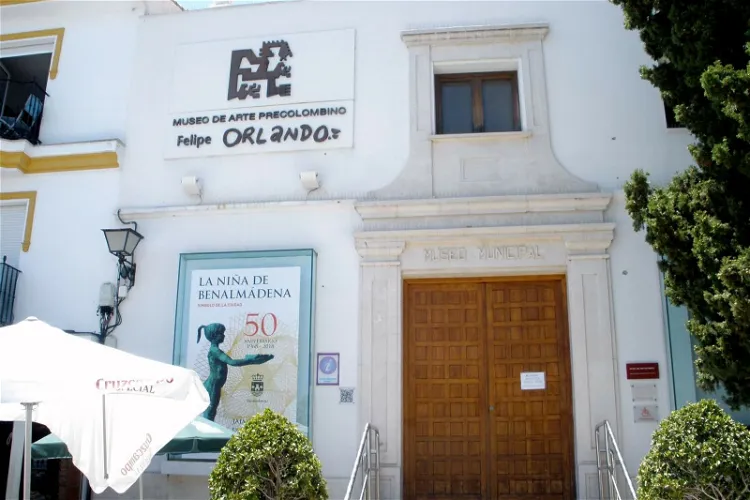
Benalmádena Museum
BenalmádenaThe Benalmádena Museum, previously known as the Municipal Archaeological Museum of Benalmádena, is situated in the heart of the old town, Benalmádena Pueblo, in the coastal municipality of Benalmádena, Málaga, Spain. This location offers visitors a chance to explore the rich history and culture of the region while enjoying the scenic beauty of the coastal town.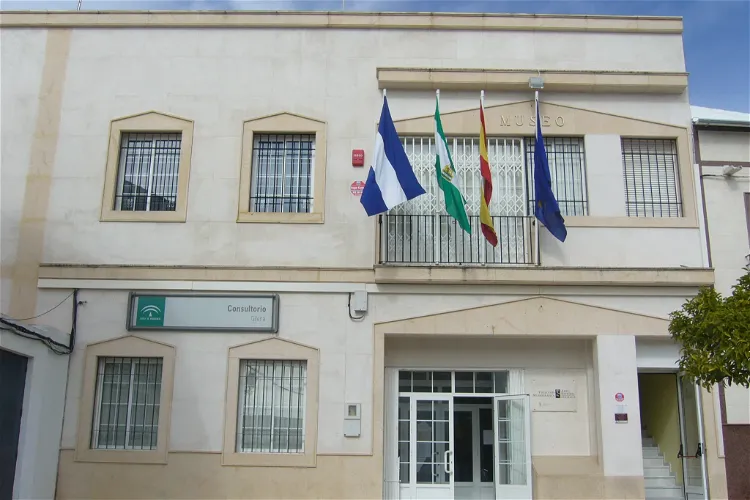
Colección Museográfica de Gilena
GilenaThe Colección Museográfica de Gilena, located in the municipality of Gilena in the province of Seville, Spain, offers a permanent exhibition divided into two distinct areas. One area is dedicated to the artistic work of local painter Francisco Maireles Vela, providing a didactic explanation of his contributions to the art world. The other area focuses on the historical and cultural evolution of the town, tracing its history from Prehistory to the Visigothic society.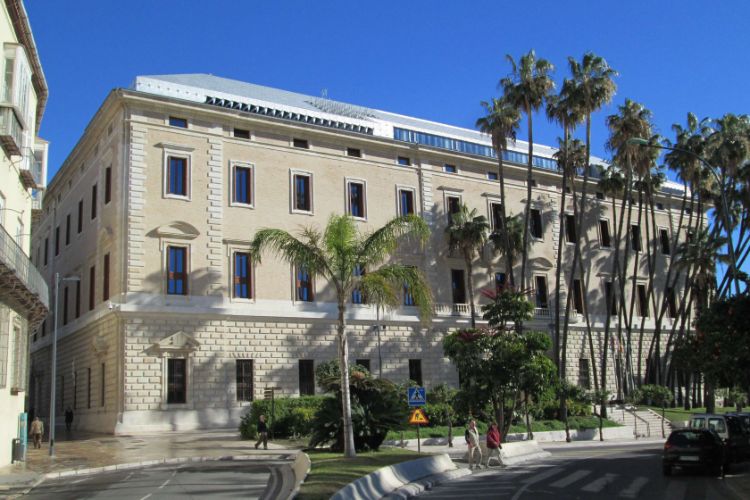
Museo de Málaga
MálagaThe Museo de Málaga is a museum in Málaga that includes the collections of the former Museo Provincial de Bellas Artes and Museo Arqueológico Provincial. The museum holds a collection of more than 2,000 pieces related to the Fine Arts and over 15,000 related to Archaeology.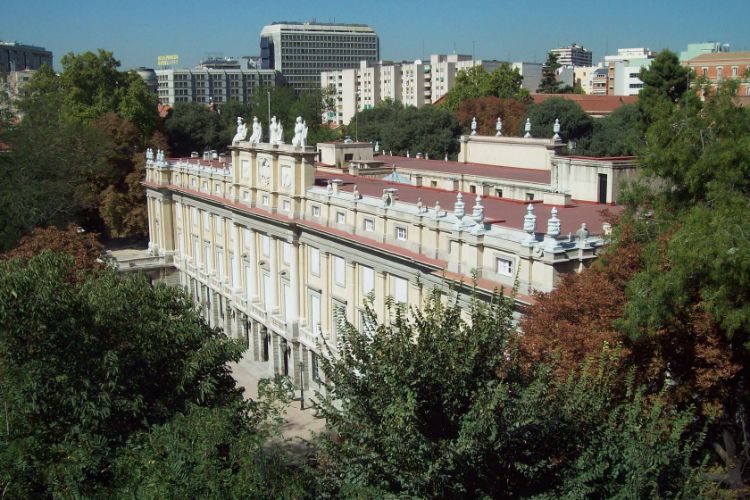
Liria Palace - Casa de Alba Foundation
MadridLiria Palace - Casa de Alba Foundation (Palacio de Liria - Fundacion Casa de Alba) is a Neo-classical palace that was built in the 18th and renovated in the 20th century. It houses a collection of European art, including paintings, engravings, sculptures and decorative arts. It holds works by famous- 78
Vilamuseum
VillajoyosaVilamuseu, the Municipal Museum of Villajoyosa, is situated in the former Public School Álvaro Esquerdo. The building, which is of an eclectic style, has had its facade preserved, adding a touch of historical charm to the museum. This location is not only home to the museum but also serves as the headquarters for the municipal network of museums and monuments in Villajoyosa. 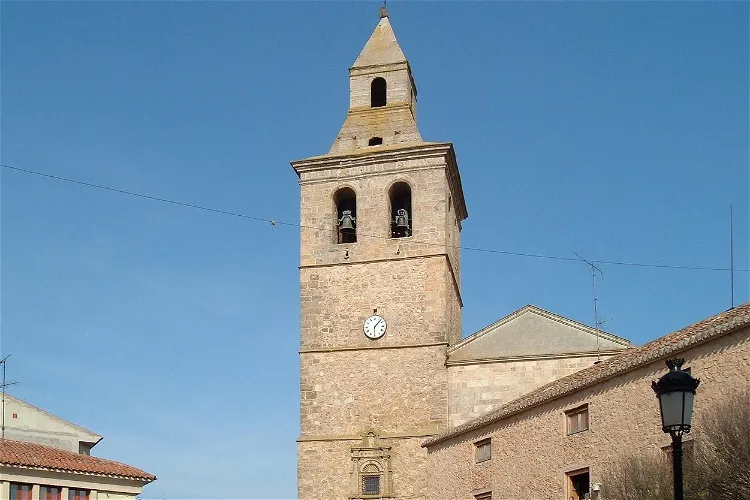
Church of Santa Catalina
El BonilloThe Church of Santa Catalina, situated in El Bonillo, Spain, holds a significant cultural value. It was recognized as Bien de Interés Cultural in 1992, a designation that marks it as a site of cultural interest in Spain. This recognition is a testament to the church's historical and architectural importance.